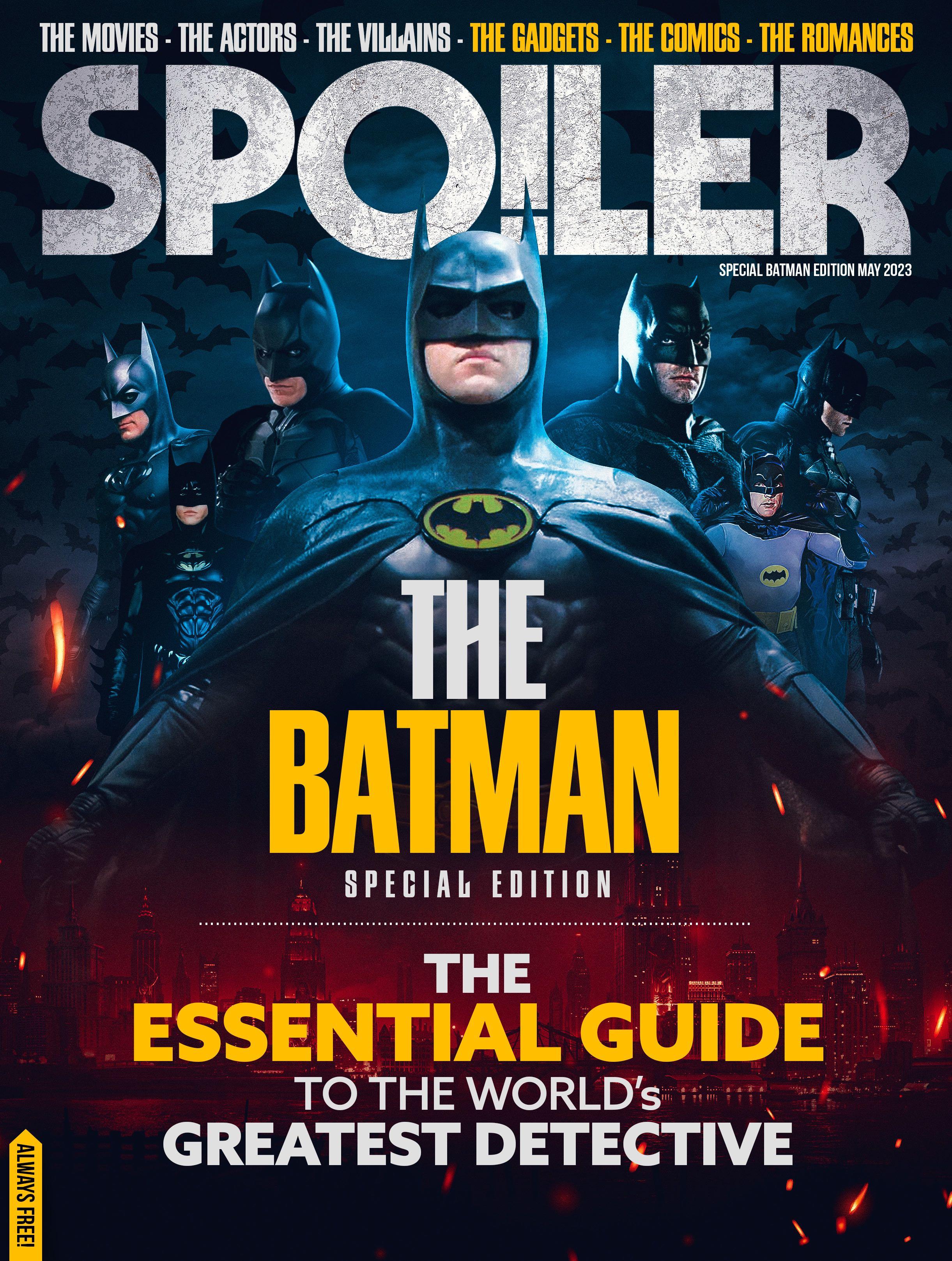

ALMOST DEAD COMIC



COMIC BOOK COMING SEPTEMBER 2023
JOHN LIVESAY Inks
@AlmostDeadComics
Almost Dead is a postapocalyptic horror- drama adventure about triumph, growth, and the resiliency of the human spirit. With their cinematic comic book series which depicts vicious and visceral events in a raw yet beautiful way, Galaxy has redefined the genre and nearly invented one of their own. Infusing the perilous and unexpectedly exciting journey with absolute horror and an attention to detail that’s rooted in and dedicated to realism, the creator and writers have established a nexus point between exhilaration and terror.
 GALAXY Writer / Creator
RYAN BENJAMIN Artist
TYLER KIRKHAM Cover Artist
GALAXY Writer / Creator
RYAN BENJAMIN Artist
TYLER KIRKHAM Cover Artist
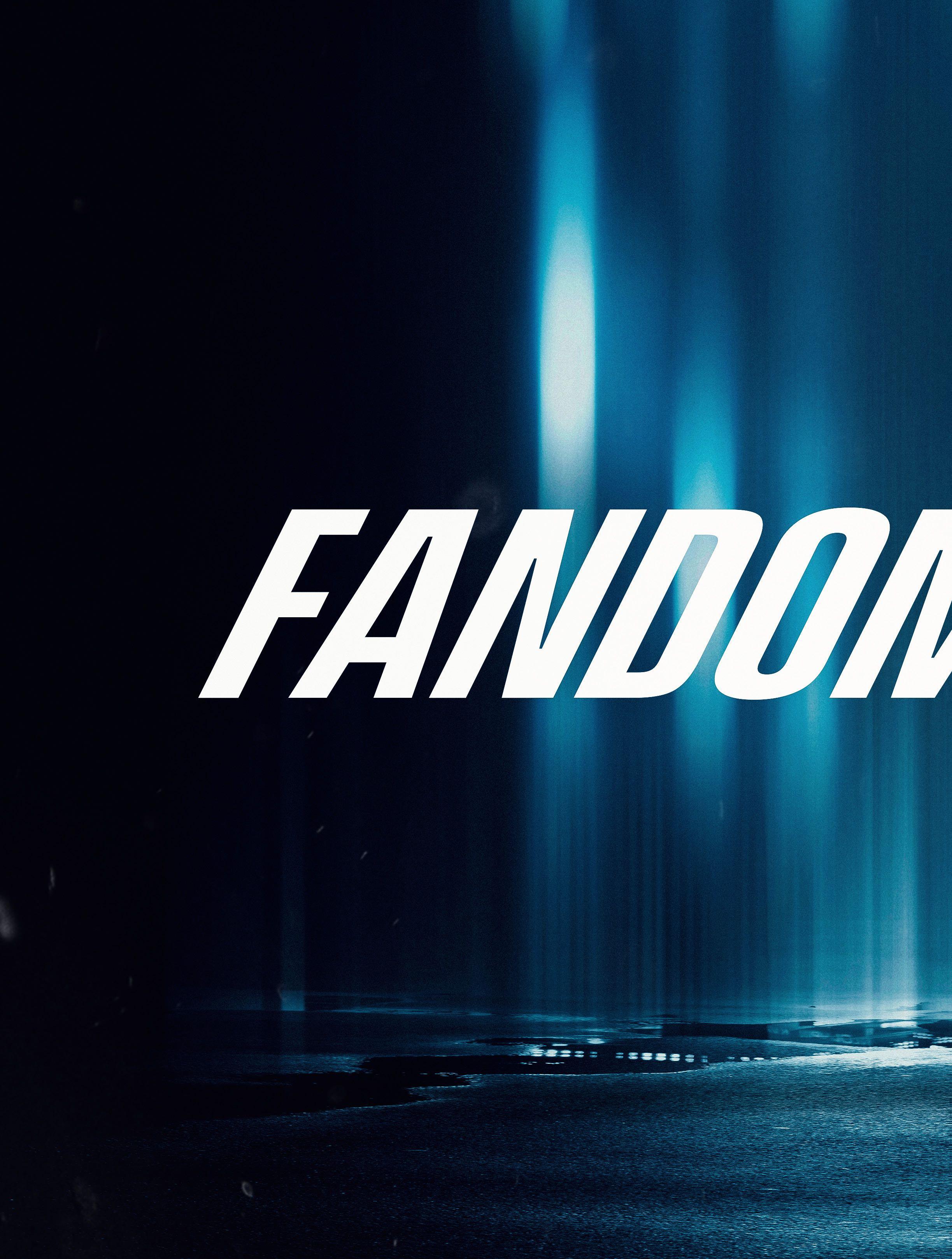



INSIDE OUR UNIVERSE
By GalaxyHello readers, both old and new! Welcome to our special BATMAN edition of SPO!LER magazine!
As you flip through these pages of wonders both visual and verbal, you will get immersed into the world of the Caped Crusader, the Gotham Guardian, the Dark Defender, the World’s Greatest Detective, you get the point. Our dearest and nearest, we appreciate you so much, I can’t thank you enough for coming back and entering our Universe once more.
Inside these pages you’ll find amazing articles spanning the many different lives, forms, and mediums the Dark Knight has lived in. Packed with content to feed your fix of the best detective hands down on any earth in the multiverse. Written by some of the best as we’ve brought together a litany of professional Batman lovers to curate this special edition of your favorite fandom magazine.
Hold your breath as we go deep into everything Batman. From Villains to Gadgets, Actors to Romances, Theories to Moral Codes, the World’s Greatest Detective has a litany of fans around the world who are excited to dive into a celebration of one of DC’s most recognizable heroes.
I hope your 2023 is going fabulously well. And no matter what, we’ll always be here for you to provide a slight distraction from all the hustle and bustle (or even the sitting around at home) of your hectic lives.
Please subscribe to us on our website and on our social media outlets for more news about the exciting things right around the corner!
As always thank you again for all your undying love and support! We appreciate your love, your loyalty, and most importantly, your fandom.
Have fun and stay safe!
Love you all…
www.spoilermagazine.com
Editor-in-Chief
Galaxy
Print Editor Sara Hope Art Director Kent Klarks
Design and illustration Supervisor

Ronald Garcia
Design Manager

Zerologhy

Copy Editor
Dave Weber
Staff Writers
The Greatest Writing Team in Our Universe!
Tom Tormey
Dave Weber
Rebeca Nishi
Robert Lockett
Chris Georges
Jennifer Ariesta
Matthew Timpanelli
Sushant Alexander
Tyson Yurai
Caleb D Fietsam
Matthew Mclachlan
Ethan Brehm
Social Media Manager
Thor the all mighty Advertising Ads@SpoilerMagazine.com
Sponsorship
Sponsorship@SpoilerMagazine.com
Press
Please send all press releases to: Press@SpoilerMagazine.com
Please send all review material to: Review@SpoilerMagazine.com
Subscriptions
For all subscription enquiries please contact: Sub@SpoilerMagazine.com
Check out our website for details on how to get our DIGITAL EDITION
Circulation
Do you want this magazine at your local book store, comic book hangout, toy shop, or anywhere else for that matter?
Let us know, we can make it happen. circulation@SpoilerMagazine.com
SPOILER Magazine is published by Spoiler Media Magazine Publishing. Nothing in this magazine can be reproduced in whole or in part without the written permission of the publisher. Whilst every effort is made to ensure all information in the magazine is correct, details may be subject to change. All photographic material is copyright to the relevant owner and appears with their kind permission. Visuals are used in a review context and no copyright infringement is intended. All rights reserved.
SPOILER Magazine is printed in the USA
SPOILER Magazine
7095 Hollywood Blvd Hollywood, California 90028
“Good Morning, Good Afternoon, Good Evening”
- Galaxy









IT’S UNDENIABLE THAT BATMAN IS THE MOST ICONIC SUPERHERO OF ALL TIME.



To date, we’ve seen FIVE cinematic continuities featuring the Caped Crusader, and that’s not counting the many animated and television iterations. Aside from SpiderMan, no other comic book characters have seen that many portrayals across different mediums.
Even though Batman has had many faces through the decades, people can’t seem to get tired of him. These actors have had the privilege of playing Bruce Wayne/Batman. Let’s examine the different ways each of them portrays the billionaire orphan turned vigilante.

The Adam West Batman began on TV in 1966 before spreading his wings to the big screen. This version is now probably best known for its catchy theme song. True to the 60’s psychedelic mania, West’s version forewent the comic’s dark tone and leaned heavily on the campy element, making it the most comedic (and meme-worthy) Batman of all time.


Michael Keaton assumed The Bat’s mantle in Tim Burton’s Batman (1989) and Batman Returns (1992). His casting was controversial at the time: the lanky and unconventionally handsome Keaton was considered a weird choice to portray the Caped Crusader. Coupled with the fact that he was, at that point, best known as wacky Beetlejuice in Tim Burton’s 1988 movie, the doubt wasn’t entirely unfounded. Nonetheless, he proved them wrong. Keaton imbued his Bruce Wayne with socially awkward energy that made him vulnerable-looking enough nobody would ever confuse him for his alter ego. Yet, his charisma endures long after he quit the franchise. Keaton’s Batman is set to make a longawaited return in this summer’s The Flash.
 “Nanananana – Batman!”
ADAM WEST
“Nanananana – Batman!”
ADAM WEST
CHRISTIAN BALE
VAL KILMER
Following Keaton’s departure from the role, Val Kilmer took over for 1995’s Batman Forever. With the actor (and filmmaker) changing, so was the interpretation of Batman. Director Joel Schumacher went for conventionally handsome Kilmer to fashion a more suave, James Bond-esque Bruce Wayne. And evercharming Kilmer did not disappoint; he embodied the whole flamboyant playboy persona so well. It’s a shame that his Batman is mostly forgotten now, given the tepid reviews of Batman Forever and his abrupt departure after only one film.

GEORGE CLOONEY
Replacing Kilmer who quit after disagreements with Schumacher, Clooney continued the director’s vision of a charming Batman. And who’s got more charm in Hollywood than Clooney? Too bad 1997’s Batman & Robin tanked so badly that it effectively killed the franchise for a while. Clooney’s typical stoic, perfectly measured performance was totally out of step with the campiness of the entire movie that it felt so jarring. It’s a case of mismatched tone and direction.

After an extended hiatus, Christopher Nolan cast a then 30-year-old Bale in his Batman reboot. That made him the youngest actor to ever portray the Dark Knight. Back then, he was best known as the axe-wielding madman Patrick Bateman in 2000’s Psycho. Once again, fans were skeptical, but it all went away as soon as Batman Begins premiered in 2005. Bale’s Bruce Wayne was perfect for the new millennium: a brooding hero masking a lot of unresolved trauma. Bale’s trilogy ended up becoming one of the most revered film trilogies of all time; with 2008’s The Dark Knight hailed as a game changer in the industry, prompting the Oscar to change its Best Picture quota and inspiring a whole decade of gritty, uber-serious tentpole films.
BEN AFFLECK
When Zack Snyder began assembling to keep up with MCU’s growing stable of superheroes, Affleck was roped in to play an older Batman, meant as a foil to Henry Cavill’s younger Superman. He got the thankless task of becoming the DCU’s version of Nick Fury: gathering up the superheroes for an eventual team-up movie. Well, we all know how it went down. It’s a pity because Affleck’s take on the character - a jaded, grizzled Bruce Wayne - was genuinely compelling. However, by all accounts, it appeared like nobody enjoyed the Snyderverse era all that much. Among other things, Affleck himself admitted that his alcoholism worsened during the making of these films. It’s probably best they had another clean slate which brings us to…

ROBERT PATTINSON
If the other Batman casting news were greeted with grumblings, this one was welcomed with loud jeers. Batman fans were up in arms that their beloved hero was to be played by Edward Cullen. The majority didn’t realize that Pattinson had spent the back half of his career undoing the teen heartthrob image he’d cultivated from Twilight by taking on arthouse projects like The Lighthouse and Good Time. The result spoke for itself when The Batman came out in 2022. Under Matt Reeves’ deft direction, Pattinson delivered a Bruce Wayne that was at once idealistic, sensitive and full of insecurity. He gave a nuanced portrayal of a young Batman still learning the ropes, perfectly juxtaposing his youthful face with the raging fire beneath.
As long as superheroes still sell, Batman will always get retold again and again. DC is already prepping The Brave and the Bold, another take on Batman that will run parallel with Pattinson’s version. Whoever ends up receiving the mantle, he certainly has a lot to live up to. Let’s hope it can soar with its own unique interpretation.




THE FAMOUS PHRASE FROM JACK NICKOLSON’S JOKER
still resounds in 2023 as readers and audiences are continuously drawn to The Dark Knights Battastic arsenal of weapons and gadgets. Firstly, an honorable mention needs to go out to Bruce Wayne’s money. Without the ultimate weapon of money, Batman would not be the superhero that he is. With that money comes these special and most effective weapons. This list was hard to decide as, like the Joker commented, these are all pretty wonderful. Number ten: the Bat Shark repellent… just kidding, though it did help Adam West beat up a rather vicious looking rubber shark.
Batman’s power armor has been used through a number of manifestations, including a Medieval suit in 1957. The reckoning of its true power is best realised in Frank Miller’s The Dark Knight Returns which sees an ageing Bruce Wayne don the famous suit in his climactic showdown with Superman. Once Batman puts on the famous armor, he has superhuman strength and defense which can deliver devastating blows to even the most powerful of foes.


Originally Batman’s gloves were just gloves, but over time, they developed as fins for purely aesthetic reasons to make Batman even more bat-like to his enemies. Over recent years and especially in the Nolan films, they evolved into gauntlets capable of cutting blades and being used as weapons to stop the Joker’s grand plan in The Dark Knight. A very practical extension of Batman’s defense, the gauntlets are now considered a key part of his gadgets and weaponry.
 10. POWER ARMOR
9. BAT GAUNTLETS
10. POWER ARMOR
9. BAT GAUNTLETS
This was another wonderful moment in the DC universe that briefly merged into the Star War’s galaxy, delighting fans of both worlds. Initially used in Batman: The Brave and the Bold, the Caped Crusader’s utility belt buckle becomes a handle, allowing Batman to withdraw a beam of pure energy or rather, a Bat Lightsaber. This welcome addition to the Bat arsenal allows him to cut through almost anything, sending his opponents fleeing in fear.


7. SMOKE BOMB
First used in Detective Comics #33, the smoke bomb has been a significant part of Batman’s arsenal. Based on the real-life smoke grenade, the aims of the smoke bomb are two-fold: 1. It allows Batman the element of surprise with a smokescreen which allows him to escape or hide from his enemies. 2. It startles his enemies long enough for him to gain the advantage in combat. These bombs are also a very functional part of the Arkham game series and vital to the combat tactics of the Dark Knight.


KRYPTONITE RING
One of the few weapons not made by Batman, the Kryptonite ring was first forged by Lex Luthor, but given to Batman by Kal-El as a way of evening the odds if ever the two were to engage in combat. It has come into play in a few rare moments in the DC Universe, allowing Batman to give old Supes a reality check and knock him firmly into the ground. The fact it can clobber the almighty Superman makes this a worthy inclusion on the

5. THE BATMOBILE

One of the most iconic devices on the list, the Batmobile has taken on many shapes and sizes over the decades, but one thing is consistent, it is quite the menacing weapon when used on its enemies. Featuring its own arsenal of weapons such as a missile launcher, machine guns, EMP and a range of counter measures, it can provide the necessary advantage when Batman is outnumbered. A stylish means of transportation, the Batmobile is another Battastic weapon of justice.

4. BATERANG
We couldn’t have a Batlist of weapons and gadgetry without including the famous Batarang. The key to this weapon is its simplicity and practicality in most situations. The iconic Batarang has been used throughout the entire comic series, entire filmography and every iteration of the games. Designed in the bat shape, it originated as a boomerang-like device which could be returned after release, though it’s used more as a ninja star in more modern developments. Both a weapon to level the playing field in combat or to unlock or release certain contraptions, The Batarang is the most versatile of the weapons on this list.




2. THE MAN’S FISTS

3. GRAPPLING GUN
Another iconic gadget on this list, the grappling gun started out as a way of projecting Batman to Spiderman heights and a way of evading capture. Most recently, it has been harnessed as a weapon in two prominent films. In Batman Returns, he wrenches a wall free to knock out one of the Penguin’s goons, and Batman v Superman, Batman uses it to launch a large crate at his enemies. This legendary weapon is also a key part of the tactics used in the Arkham game series.

Who are we kidding here? The man works out like no other, and it’s through punching power that the rogue’s gallery of villains are on the receiving end of dark retribution. He may throw all manner of advanced weaponry to distract and intimidate, but most of Batman’s enemies often meet their demise on the end of one his fists, making the Batfist number two in the ranks.
1. HIS BRAIN
Mostly, ‘the pen is truly mightier than the sword,’ but in this case, it’s the brain behind the pen. The World’s Greatest Detective would ultimately be ineffective without his superior mind to analyze the clues nor would most of these inventions be designed without Batman’s superior intellect. This is often glossed over in the films, but Batman’s intelligence is key. His ability to respond to whatever situation he is in whether it’s a trap to escape, a crime to solve or an army of rogues, makes his brain the number 1 weapon on this list.






‘‘HOT WINDS BLEW OVER MY FACE. I FELT LIKE A MILLION PIPING HOT PANCAKES. FRESH OFF THE STOVE. SERVED HOT. AND THE LEAST BIT OF A DAD (FATHER).’’
Far from the powers of being super and extraordinary, beyond the shades of black, what makes Batman is Bruce Wayne. That is, the other side of Batman. The highly intelligent playboy billionaire, philanthropist, Bruce, was in his quest to become a good father. Although he remained unmarried.
Engaged in the thrills of circus acrobatics, oblivious to the clear and present danger that appeared in the form of his parents’ deaths - a high tension trapeze sabotage witnessed by the Caped Crusader, Dick wasn’t sure if he saw a Bat on the horizon.
Batman soon realized being a father might be a bit more challenging than being a vigilante.
Dick sought revenge. Bruce knew he wasn’t ready. He trained him and together they became the crime fighting dynamic duo. Robin showed the light for all the future superhero sidekicks.
Every father would like his son to follow in his footsteps. Dick Grayson
came closest in that sense, and it made Batman human.
Perhaps, Bruce must be happiest with Dick Grayson as Robin. He eventually emerged from the shadows and became Nightwing, patrolling the streets of Bludhaven.
Nightwing and Batman resolved their differences and came to an understanding over the reasons for their emotional separation. Bruce Wayne embraced Grayson as his son



and asked him to temporarily adopt the Batman guise in the Prodigal storyline.
It was tough to win the heart of a teenager as a good father. As a young adult, Robin went through many changes. Even a sex change. Fortunately, no physical or irreversible change. It is as real as it gets in a comic book.
Jason Todd was unlike Dick Grayson. Yet there were many similarities. Like Dick, he came from a circus family – Flying Todds.
Comparisons kill. He shouldn’t be compared to Grayson. He was a typical problem child. Nothing changed much even after the entry of the Caped Crusader.
Jason was an anti-hero. He violated the code of honor. Some readers believe Todd’s Robin brought Batman closer to the kill, a new series of violence. A role reversal in the ‘father and son’ situation. The many infamous villains of Gotham would never cease to exist, and the cycle of violence never stops. Ironically, Batman brought in Jason realizing he might fall into crime without a guardian. There was bad blood. The fans wanted him dead. In Joker’s words: “You’ve been a BAD BOY. You must be punished. Prepare yourself for a severe spanking, young man.” He met his end at the hands of Joker. However, it left a scar in Batman’s shade of black. It took time to heal.

This made it hard to welcome the next Robin to the cave. As fate would have it, Drake, the next Robin, had figured it all out. He was the hacker of a Robin. The techie guy who figured out Batman’s true identity.
Tim Drake had to prove his worth as a Robin every time. He could have walked out anytime, but he didn’t. His outsider’s perspective made him unique compared to any other and allowed him to see things those other heroes didn’t. It made him insecure and a free thinker.


When the world gave up on Bruce after Jason’s death, Tim didn’t. He went the extra mile and proved them
wrong. Deep inside, he felt he had to work twice as hard to keep up with the other Robins. Maybe, he knew his father better than the other sons. Although, Bruce never really accepted Tim as his own.
Stephanie Brown aka Spoiler was the most talkative Robin ever. She could handle stunts as well. What really made her stand out in the pack is the constant chatter. It made Batman realize the importance of human connections, that working in a cave and being a lone ranger is just a part of being a vigilante. It’s hard
to tell what kind of a father he would have been to Spoiler. This Robin is significant in Batman connecting to Bruce like no other and Stephanie’s transformation to Batgirl.
Son of the Demon catches the eye for Damian Wayne. He was the son of Bruce and Talia Al Ghul. Trained by Talia and Ra’s Al Ghul’s League of Assassins, ten-year-old Damian earned the reputation of world’s deadliest killer groomed to become the ultimate warrior. There is only one standing on his path. Bruce Wayne. When Damian wanted to know about his father, Talia didn’t object. It was the boy’s right.
Bruce sensed Damian’s murderous instincts. He accepted the boy to train and guide him on the right path. This was the Robin that had brains and brawn. Unfortunately, his arrogance and disregard for human life made him a poor fit in Batman’s universe.
Following Bruce Wayne’s short visit to the land of nod and Dick Grayson taking over, Damian found a new mentor in the new Batman. He liked it under the watchful eyes of Bruce. This was short lived for Bruce. Talia didn’t want Damian to follow his father. In the game of death, nobody is a real winner.

Bruce was left alone in the darkness. He was deeply saddened. In the many combinations, there is no clear prize-winning Batman & Robin pair.
In the trials and tribulations of the Caped Crusader, Robins make shiny cracks on Batman’s Black for light to enter.
Does the world need a hero? Or is it just that America needs a Dad?



BATMAN’S MORAL CODE
Batman’s essential rule of no killing came before the formation of the Comics Code Authority in 1954. Early DC comics weren’t bound by the constraints of these rules and when Batman first appeared in 1939, he was ruthless and had little concern for the lives of his enemies. In Detective Comics #27, his first appearance, Batman punches Alfred Stryker into a vat of acid after the man assassinates his business partners. It wasn’t until Batman #4, when Batman instructed Robin not to use the blade of a sword against pirates, that the moral code of Batman was introduced. According to Bob Kane, the inclusion of Robin interested children in the early graphic novels, and the new audience elicited complaints from parents that Batman was too violent. This shaped Batman’s character and became a common plot device in many stories to come. Batman


has rarely broken his own law since the early 1940s, but it doesn’t stop him ignoring some of Gotham’s laws like breaking and entering, using excessive force and many other crimes Bruce Wayne himself commits while seeking justice as a masked vigilante. This issue of non-killing is one that is relevant in our own justice systems in the real world. While some governments allow execution of certain extreme cases, others like Batman, vow to never cross that line. It is an issue widely debated in our society. One may ponder if there are crimes committed that are unforgivable, or if a person is so evil that they have no chance of rehabilitation. An irredeemable crime does not necessarily require the death sentence, as indefinite incarceration might be a worse punishment than death itself. However, being so unremorseful that one has no hope to change their evil ways, leads society to make a decision to protect themselves for fear of what this person may do in the future if left to remain among us.

Bruce Wayne has most likely never forgiven his parents’ murderers as it has shaped who he is today. However, it has not forced him to execute those who he believes are guilty of similar or worse acts. The Joker, for instance, is one of Batman’s fiercest enemies who is defined by his love for chaos. He is a true psychopath driven by his desire to prove philosophical points without regard for human life. His mere existence in the universe puts everyone in danger, yet Batman


locks him up rather than ending his life. One may argue that this is naive of Batman because it is likely that the Joker will just escape as he has time and time again to cause more destruction.



Why then does Batman continue to make this decision? Is it because he feels responsible for making the Joker who he is today? Is it that he seeks to undo what transpired all those years ago when his foe fell into a vat of acid while trying to flee Batman’s violent justice? Perhaps, he feels that everyone, even the worst of us, should be given the opportunity to change, and he believes that The Joker has the capacity to be a different person. Maybe this belief that one can change is something that he hopes society itself can adopt so they can forgive Bruce Wayne for his own mistakes.




SUPERMAN HAS HIS KRYPTONIAN
superstrength and laser eyes, Wonder Woman has her Amazonian agility and lasso of truth, Aquaman has his hydrokinesis, The Flash has his superspeed. Meanwhile, Batman… is Batman. Of course, the joke is that he has tons of money, as Ben Affleck’s Bruce Wayne matter-of-factly told Ezra Miller’s Barry Allen in Justice League. Indeed, Bruce Wayne - and his alter ego Batman - never possesses a superpower. So, what makes the Caped Crusader a mighty figure that stands tall among the pantheon of godlike beings in DC’s gallery of superheroes?

FOR LACK OF A BETTER WORD: HE’S RICH
HE’S ALSO STREET SMART
You can’t argue that a huge part of Batman’s strength he acquires through his wealth. He built a Bat Cave full of state-of-the-art gadgets with Wayne’s fortune. It’s how he funds his entire crime-fighting endeavor: the sleek Batmobiles with all their weaponry, the high tech Batsuits that practically render him as invincible as Superman himself, not to mention the many fancy armories he’s got lined up. Even James Bond would be envious of Batman’s collection! The fact that he even has a Bat Cave hidden underneath his sprawling manor is a testament to how inextricably linked his riches and The Bat’s might are.
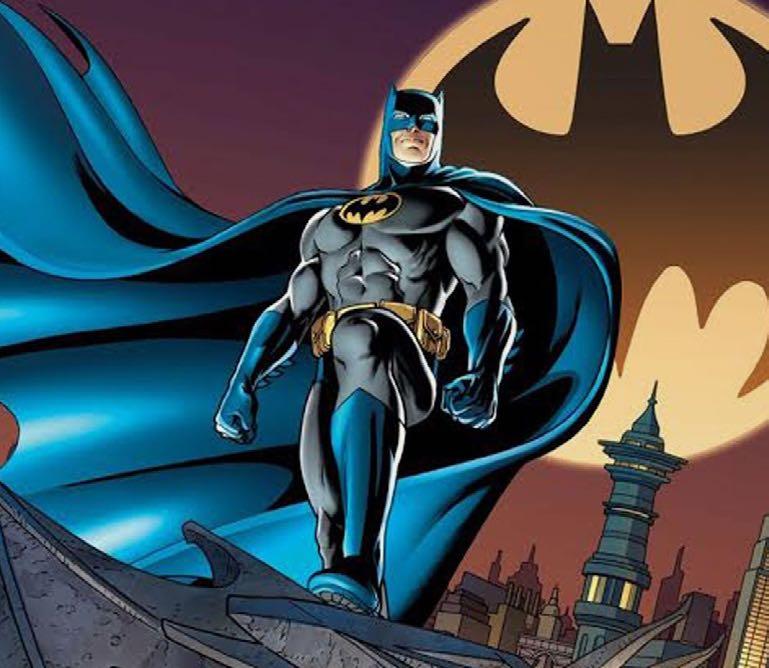


Of course, none of the fortune would matter without the man in the suit. He made a choice to use his money for good, and that is the true strength of his character. The closest comparison in the MCU would be Tony Stark. Without the suits, both are “genius playboy billionaire philanthropists,” though Tony has a massive edge in the genius department. Bruce isn’t the brainy type, but he’s certainly street smart. He knows his limitations and utilizes what he has to keep up.

He surrounds himself with smarter people like Lucius Fox to build his armory and the surveillance devices to monitor his enemies. He also knows how to keep good, loyal people by his side; people like Alfred, Robin and Commissioner Gordon who are in it for the long haul. You can say the Wayne Enterprise heir is an astute businessman with his Batman venture as well.
HE’S GOT INHERENT TRAUMA THAT KEEPS HIM GOING
HIS ALTER EGO ALLOWS HIM TO MOVE IN DIFFERENT CIRCLES FLUIDLY
Being both Batman and Bruce Wayne, he’s got an advantage in mixing with the bottom of the barrel and the elites. Bruce deliberately presents himself as an insipid playboy who cares little about the world, distancing his image from Batman’s uprightness. As Bruce, he’s able to access the upper echelon of Gotham’s society: the mayor, law enforcement, the power players - all the people responsible for making the city better or worse. As Batman, he’s able to mingle with the seedier part of the city, depicted so well in 2022’s The Batman. This allows him to do what officials are too restricted to do, as well as discover things hidden from society. He can embrace the worst of both worlds, a key strength in his ongoing quest for justice.



Wise men say that what doesn’t kill you only makes you stronger. To Bruce, that is his lasting trauma caused by his parents’ murders. Quite bleak, but think about it: at its core, Batman is a story about a grieving orphan taking on the mantle of a vigilante hellbent on cleaning up the crime-riddled streets that killed his parents. That is literally Batman’s raison d’être, as explored in various iterations. The story almost always begins with a scene where a young Bruce watches Martha and Thomas Wayne get gunned down in an alley. In Christopher Nolan’s The Dark Knight trilogy, this inherent grief pushed him to search all over the world for a purpose, landing him in the League of Shadow before subsequently leading him to take up the cowl. Critically, the culmination of Nolan’s Batman was when he finally let go of the alter ego and contentedly lived on as just Bruce. The Batman also made this the crux of Bruce Wayne’s journey. Pattinson’s version turned Bruce into a recluse, hiding behind the cowl to cope with the lasting trauma of losing his parents. His character arc involved him realizing that his parents had left a more complicated legacy than he previously believed, forcing him to re-evaluate his entire motivation.


Bruce’s backstory mirrors that of another superhero whose innate drive comes from a parental figure dying: Peter Parker with his Uncle Ben. Without the tragedy, Bruce is almost definitely going to grow up to be just another Gotham billionaire content with running a multinational empire.

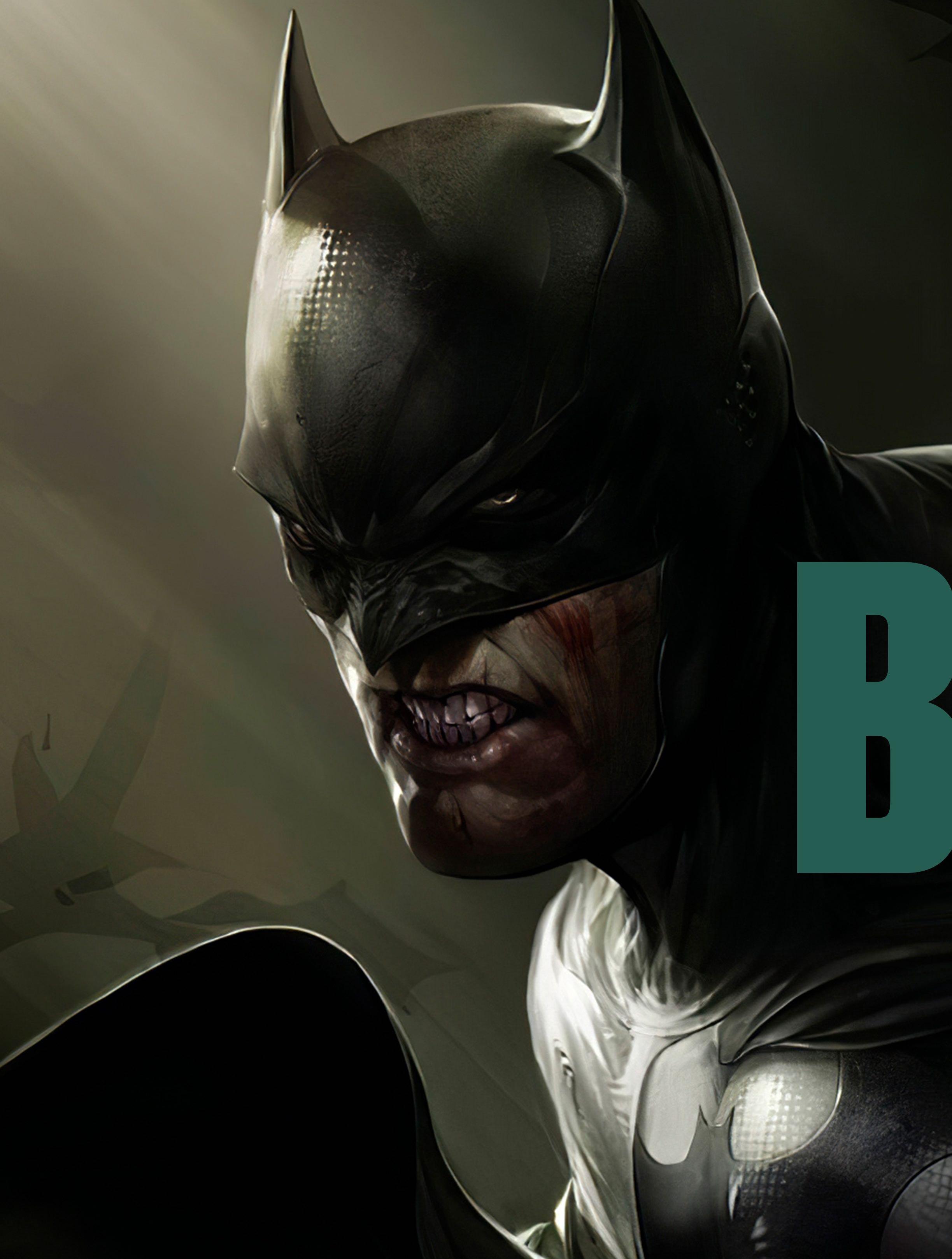


A PLAN GONE WRONG
As a human, Batman has many flaws. From his psychological issues to his obvious physical limitations, he is not perfect by any means. Surrounded by superhumans like Superman who is virtually unstoppable, Batman needs to be extremely resourceful to be successful. He also needs to be ready for anything, making him the most prepared superhero with a counter to every scenario that may play out.
However, on many occasions, Batman has failed. The murder of his parents led him to don the cowl in his search for justice. He made a promise on that fateful night when those closest to him were taken away, to never be helpless again like that boy in Crime Alley, surrounded by his mother’s scattered bloodstained pearls. For the DC Universe’s most prepared superhero, how then, is it that this has happened again and again. Perhaps, it is his compassion

for others like him that inspires Batman to lead them down the path of vengeance.




Batman takes on a partner early in his crime fighting career. He witnesses Dick Grayson become an orphan when his parents are murdered in a gymnastic accident orchestrated by Tony “Boss” Zucco. Dick becomes Robin, the world’s first superhero sidekick, when Batman takes him under his wing.
He later breaks away from Batman and remakes himself as Nightwing, following in the footsteps of his mentor. He has a successful crime fighting career himself in Bludhaven, worthy of succeeding the Dark Knight’s legacy. All is well and good when things go right, but they don’t always go as planned like in the Death in the Family’ storyline.



Jason Todd is killed by the Joker and Batman once again is helpless to prevent someone close to him from harm. Batman then feels responsible for leading Jason down his familiar path of vigilantism, but it doesn’t stop him from making the same mistake as his future companions. Many others close to Batman have been targeted and have fallen after he lost Robin to Joker many years ago.
Actually, most of Batman’s sidekicks are killed during Batman’s watch as well as others that are related to Bruce Wayne. Barbara Gordon is paralyzed by the Joker in The Killing Joke. Even Alfred, his mentor and closest friend, could not be saved by Batman in recent
events. As you can see, being in the Batman family is clearly dangerous. As much as he would like to avoid collateral damage, perhaps without his circle of collaborators, Batman couldn’t be as prepared as he needs to be. In his search for justice, he often uses the help of those around him to compensate for his lack of superpowers, drawing in a network of people that are often put at risk so that Bruce Wayne can battle crime. However, having a cast of characters close to him gives his enemies an opportunity to strike when Batman himself is hard to reach. His need to protect others draws him closer so that his enemies can access Batman when he is most elusive. Batman’s greatest tool, his obsession with preparation, may be his greatest weakness after all.





THE DARK KNIGHT.

The Caped Crusader. Bruce Wayne. Batman has many names, but his most important sobriquet is The World’s Greatest Detective. From his intelligence to his preparedness, Batman consistently proves no crime in Gotham goes unsolved. The following list dives into several stories from comics, television and movies to provide ten reasons why Batman deserves the moniker of The World’s Greatest Detective.
NO CAPE. NO COWL, NO PROBLEM.

An episode from the animated series, “Perchance to Dream” strips Batman of his cape, cowl and equipment. In their place is an opportunity, a life free from crime fighting. One where Bruce Wayne is engaged to Selina Kyle and his parents are alive. Through keen awareness while reading a newspaper, Bruce discovers he’s trapped in a dream. He uses his intelligence to escape the dream and take down the man responsible.

ATTENTION TO DETAIL
Batman: Black and White is a series of shorts published in anthological form and outside of regular canon. “Perpetual Mourning” is written and illustrated by Ted McKeever. In it, we find Batman piecing together the murder of a young woman. His attention to detail goes beyond his examination of the body. Batman proves to be The World’s Greatest Detective as clues point to more than a culprit. They advise Bats on the state of the world he has sworn to protect and remind him it is still worth protecting.
FEARLESSNESS
Grant Morrison’s Final Crisis shows us a man can take down a god, and it reminds us of the fearlessness required to do so. Although not working alone, Batman’s one weakness sets him apart from the rest of the Justice League. He possesses no superpower, and Darkseid underestimates him because of it. Taking advantage of the opportunity, Batman’s fearlessness allows him to stare into the eyes of death and pull the trigger.
SELF-REFLECTION
The mettle of a true detective is their ability to self-reflect and use what they learn to improve their skills. Batman: War on Crime, written by Paul Dini with art by Alex Ross, shows Batman doing exactly that. He asks himself, “what kind of man would I have become if things had been different?”


The remainder of the story shows time spent reflecting not only improves decision making but also how we treat others. By providing him time to self-reflect, Dini and Ross show how Batman keeps clear the fog of doubt to make the right decisions.
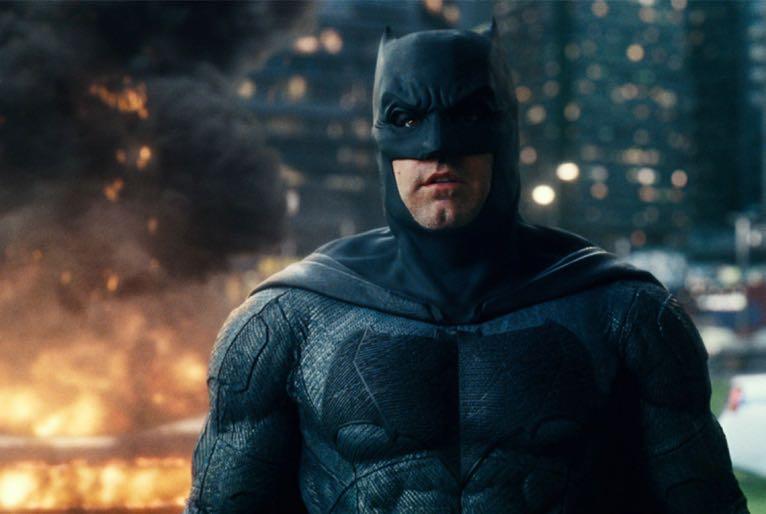

COLLABORATIVE ATTITUDE
Joseph Loeb’s Hush introduces audiences to a mysterious villain with a close connection to Batman. Using various members of the Rogues Gallery, our lead baddie, Hush, plans to destroy Batman in epic fashion. While putting the pieces together, Batman realizes he is going to need help taking down this cancer on Gotham. Robin, Nightwing, Huntress and Catwoman all step in to assist the Dark Knight. While Batman is known for being a lone wolf, he’s smart enough to know when to collaborate. Hush is a great example of how even The World’s Greatest Detective must lean on others and trust their intentions.
SACRIFICE
Mask of the Phantasm is a strong example of Batman working as a detective. Criminals keep falling to a figure dressed as the Grim Reaper, and Batman needs to use all his powers of detection to discover the identity of this villain. The movie sees our hero put the pieces together only to discover the masked wraith is someone he knows intimately. In this moment, Batman discovers he may have lived a more joyous life had he never made his sacred pledge. The audience sees just how much Wayne has sacrificed to be the hero we need him to be.
RESILIENCE
The Batman focuses primarily on his detective skills and shows how resilience can keep us pushing for the truth. As a series of politicians are murdered in Gotham City, Batman races to take down the one responsible, The Riddler. Cutting deeper through The Riddler’s web, Bats is confronted by the corruption of his city and the part his family may have played in it. Without a great deal of resilience, Batman’s discoveries and the mayhem dished out by The Riddler would crush him. He proves that to be The World’s Greatest Detective you need to bounce back after being beaten down.

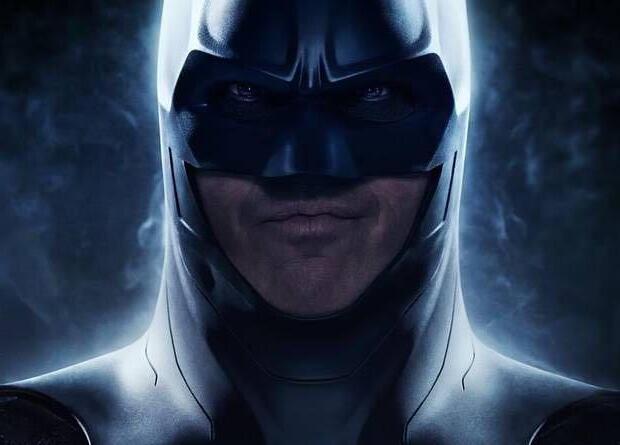

BEHAVIORAL ANALYSIS
Written by Brian Augustyn and Mike Mignola, Gotham by Gaslight finds Batman in Victorian-era Gotham hunting the infamous Jack the Ripper. After being placed in jail having been framed for the murders, Batman uses his skills in behavioral analysis to gain assistance from James Gordon in cracking the case. It is this same skill that helps Batman realize who the murderer is and his connection to the Wayne family. A single photo is all it takes for Batman to put the pieces together and discover Jack the Ripper’s true identity.
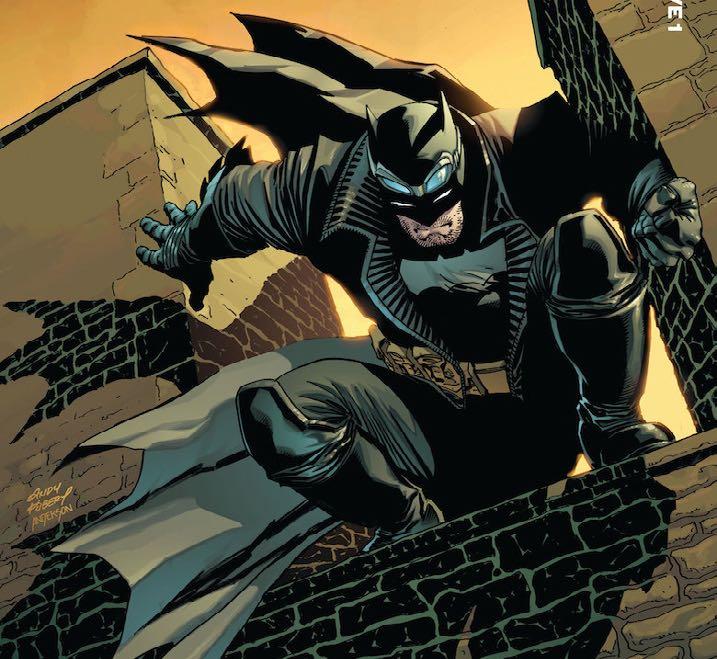

ADAPTABILITY PREPAREDNESS
Scott Snyder’s The Black Mirror puts a new face beneath the cowl. Dick Grayson is now responsible for saving Gotham using the teachings of his mentor. He must adapt to his new role and discover who is placing weapons in the hands of Gotham’s supervillains. Moreover, he must continue to adapt to a life he has not yet grown comfortable living. His investigation and ultimate discovery of the man responsible will test Grayson’s ability to adapt but proves he is worthy of the cowl.
Our final entry is another of Grant Morrison’s seminal stories. Batman RIP pushes our hero to the frayed ends of sanity only to find he has a contingency for everything. When The Black Glove pursues his utter annihilation, Batman activates a backup identity to take over the case and bring down this crazed syndicate. Known as the Batman of Zur-En-Arrh, this emergency identity saves Wayne after he is injected with a lethal dose of drugs. One would need to see many steps ahead of their adversaries to even consider the possibility of a backup identity. Thankfully, as Morrison writes, “Batman thinks of everything.”



THE BATMOBILE, THE OFFICIAL CAR

used by Batman in his missions, is always something to talk about. Every time it surprises the audience, whether they like or not, it’s never unnoticed.
In The Batman (2022), the Batmobile came alive. It’s a character itself… scary, imposing. In the scene where Batman is chasing Penguin, you could feel the fear in Penguin’s facial expression when he was stuck and heard the noisy car snoring and looked in the rear-view mirror seeing the spooky view of the Batmobile. The director Matt Reeves and designer James Chinlund created “a giant designed to intimidate”.

The huge front bumper and the wheels larger than the bodywork are striking. The exhaust pipes are protruding on the sides. The powerful rear engine is exposed with a retractable system like fish gills. It’s a muscle car with a V10 engine and the look of Fast and Furious. The engine is installed in a central-rear position. Also, it has the presence of the traditional flame launchers.
You could also compare the new Batmobile to a Pontiac Trans Am that served as the basis for the television series Knight Rider. The metal bumper, hood protection and square headlights are very reminiscent of the visual identity of the Mad Max films of the 70s.
Chinlund says in an interview, “The main chase scene is one of the most visceral cinematic experiences I’ve ever been part of. Tipping tractor trailers and smashing through things, that was all in camera. Everything the car does, it’s really
doing. No other Batmobile has performed like that.”

Although the story takes place in a fictional world, director Matt Reeves revealed his intention to make the audience feel like they are in real life, in a serious and less cartoonish environment.
Also, Batman would be slightly younger than his predecessors, in his mid-30s. Therefore, the director tried to emulate a vehicle that Bruce Wayne would have created with his
own hands as an adaptation of an existing car.
Some fans also find a parallel in the comics. The main one is Batman: Overdrive (2020), a graphic novel that features a teenage Bruce Wayne building the first Batmobile to restore his father’s favourite car. Another source could be Batman: The New Adventures #408, the Batman magazine during the 1980s. In the HQ, the hero meets the second Robin, Jason Todd, when he catches the boy trying to steal the wheels of the Batmobile. The first Batmobile appeared in comics in 1939, on Detective Comics # 27, but it was just a very regular sedan. Over time, the vehicle received the most diverse technology and visual resources.

The first appearance of the Batmobile on television was in 1966, in the premiere of the Batman series. It was a Lincoln Futura, relatively realistic compared to what came later. It had logos on
the doors and wheels, an elegant design, and gadgets everywhere. A vehicle marked by the 60’s and its aesthetics.
Grant Morrison wrote Batman comics for six years and the Batmobile is awesome during that time. Windshield, windows, and red headlights give the car an unearthly air. No wonder he even flew.

One of the most popular Batmobiles among fans is the 1989 one, driven by Michael Keaton, from the movie directed by Tim Burton. The vehicle received a more gothic look inspired by cars from the 1920s.

Batman: The Animated Series (1992) was so iconic with its crazy mix of genres. With discreet curves and an elongated design, Batman’s car had a vintage look compared to the others. Even so, it’s also a futuristic car like no other.
If you like Christopher Nolan’s Batmobile, you should read Frank


Miller’s masterpiece: Batman: The Dark Knight. A real battle tank was made to, well, kill Superman. We see a scenario in which all heroes have been made extinct by law and the only one on duty is Superman who works as a government employee. The growing crime wave in Gotham makes the almost sixty Bruce Wayne don his black cape again which puts the Man of Steel on the trail of the bat. It’s one of the most epic and bloodiest showdowns in comicsand the one that inspired Batman v Superman
Originally a 4-issue miniseries released in early 1986, Batman: The Dark Knight took very little time to be considered one of the two cornerstones of modern comics, alongside Alan Moore’s Watchmen. Written and drawn by Frank Miller, the story, showing an aged and embittered Knight of Darkness returning to action after years of retirement, crossed the boundaries of what was conventionally considered “comic books”, establishing new parameters, both in narrative and in theme and influencing everything that came after.



IN EXPLORING OUR CAPED CRUSADER’S
rogue’s gallery, it is important to acknowledge Batman’s lesser known, but nonetheless, menacing and completely underrated villains. These rank among his most deadly and powerful of foes and either mirror or act as the complete antithesis of the Dark Knight himself. Now, there will be plenty of Comic-Con fans and avid graphic novel readers that will be more than familiar with this list, but for the rest, these are some of Gotham’s lesserknown villains who deserve greater recognition:
7. CALENDAR MAN


First appearance: 1958
Calendar Man is another one of Batman’s most intriguing supervillains. With another tragic backstory, the result of severe neglect and exposure by some truly horrific parents, Calendar Man soon learned the importance of having dates and key events seared inside his brain. His original conception in 1958 was very mediocre, but with his evolution in 1996, when Jeph Loeb and Tim Sale created Batman: Long Halloween, he became a serial killer, largely inspired by Hannibal Lecter. As a serial killer trapped inside a glass cage, he would soon become a vital informant to Batman and Commissioner Gordon. The decision was a stroke of genius and allowed Calendar Man to fit the role completely, elevating his status among Batman’s villains.
First appearance: 1984
Our favourite Gotham villains are often a true reflection, a dark doppelganger, of the billionaire Bruce Wayne, and that is what makes the Wrath so dangerous. Complete with a Batcave like lair, advanced vehicles, his own sidekick and dark protégé, he is a force to be reckoned with. Like Batman, he is focused on waging his own pursuit of justice with Gotham P.D. lodged firmly in his sights as he fights to gain his own sense of retribution for the death of his parents at the hands of a young James Gordon. The creation of Mike W. Barr and Michael Golden, The Wrath first appeared in Batman Special #1 from 1984 and has gone on to enjoy a cult status among fans of the comic series.



 8. THE WRATH
8. THE WRATH
First appearance: 2003
Like Bruce Wayne, Thomas Elliot was born into a very wealthy family and after a series of dark twists and turns, including killing both his parents, his transformation into Hush makes him a legendary adversary for the Dark Knight. Equipped with wealth, a superior intellect and skills as a plastic surgeon and marksman, Hush has proven himself to be more than a match for Batman and is quickly becoming a comic fan favourite since his first appearance in Batman: Hush from 2003.


First Appearance: 1992
First appearance: 1976
First Appearance: 2011
Introducing Gotham’s Matilda Mathis, deranged serial killer and daughter of the infamous Dollmaker. Dollhouse is the first-born child of Barton Mathis. She was quickly raised in her father’s vocation, hunting and slaughtering people, as well as harvesting their organs for the family’s twisted business. Typically wearing a doll face grafted onto her skin, clad in a nurse’s outfit and holding a large sledgehammer, Dollhouse makes a more horrific addition to Batman’s cast of villainy.
Like others on the list, Victor Zsasz is a prolific serial killer born into a wealthy family and driven to madness by a tragic family back story. His path quickly diverged from Bruce Wayne’s, turning Zsasz into a homicidal maniac whose calling card is to cut a tally mark on his body whenever he kills someone. What makes Zsasz a unique villain is his weapon of mind control, possessing the minds of people like Jeremiah Arkham to torture people within Arkham Asylum, including Batman. This evil narcissist is another classic but underrated foil to Batman.


Duela Dent, aka Joker’s daughter, has an origin story as ambiguous as her supposed father’s. Popular story arcs and theories suggest she is Harvey Dent’s daughter while others suggest she is the love child of Harley Quinn and the Joker. Her true parentage may be a mystery, but what is clear is her desire for mayhem and theatrics. She originally joined Teen Titans followed by The Suicide Squad before Red Hood took her under his wing. After having a Joker mask grafted on her face by the Dollmaker, the Joker’s daughter produced a reign of terror on Gotham resulting in a series of kidnappings and murders that would make even the Joker blush. Perhaps the poisoned apple doesn’t fall far from the tree.


 6. HUSH
5. DOLLHOUSE
4. VICTOR ZSASZ
6. HUSH
5. DOLLHOUSE
4. VICTOR ZSASZ
2. CORNELIUS STIRK
First appearance: 1988
It was difficult not to rate Cornelius Stirk even higher in the rankings. Definitely an unsung villain of this list, he continues to be a thorn in Batman’s side which is largely due to the depth of his insanity and psychotic tendencies. Another student from the culinary school of Hannibal Lecter, Stirk’s level of evil makes the Scarecrow look positively tame by comparison. His supposed cannibalistic need to devour the nutrients and hormones from people’s hearts makes him quite a horrific addition to Gotham’s gallery of villains. Like the Scarecrow, he is a supervillain who has the capabilities of great fear among his enemies through hallucination and appears frequently as a powerful adversary of Batman’s.
1. PROFESSOR PYG

First appearance: 2007
Drawing such a frightening similarity to real life serial killer Ed Gein, Professor Pyg takes the mantle as one of the greatest but underrated Batman villains. Possibly the darkest and most disturbing of all the Batman villains, (and that is saying a lot), the Pygmalion inspired transformation of Laszlo Valentin’s sadistic surgeon has been another horrifying adversary that almost fatally ended Robin’s life. Pyg could
also be included in the Dexter world, as he uses all sorts of surgical instruments such as drills, hammers and ice picks to disfigure his victims for the process of turning them into Dollotrons or lobotomising them. While fortunately he spends most of his days in Arkham Asylum, Pyg is such a horrific inclusion to our morbid but underappreciated rogue’s gallery.






THERE HAS BEEN NO SUPERHERO WITH MORE
big screen iterations than Batman. First worn cinematically by Michael Keaton in Tim Burton’s 1989 film and its 1992 sequel Batman Returns, the cape and cowl have been donned by the likes of Val Kilmer (Batman Forever), George Clooney (Batman & Robin), Christian Bale (the Christopher Nolan trilogy), and Ben Affleck (the Zack Snyder-verse) over the years. But now, in one of the most anticipated films of 2022, Robert Pattinson will carry the Dark Knight torch in The Batman, out March 4.


Taking inspiration from iconic Caped Crusader comics such as The Long Halloween, Ego, the “Year One” arc, and the “Zero Year” crossover event, director and screenwriter Matt Reeves and his


co-writer Peter Craig (The Town, Top Gun: Maverick) wanted to focus on a younger version of Bruce Wayne and his alter ego with their upcoming reboot, which follows the superhero during only his second year trying to clean up the streets of Gotham City.

Getting in his way are the Riddler (Paul Dano), Carmine Falcone (John Turturro), and a fledgling Penguin (Colin Farrell), as well as femme fatale Selina Kyle (Zoë Kravitz), aka Catwoman. Jeffrey Wright portrays
robert pattinson catch-up list:




Lieutenant Gordon, who hasn’t yet been promoted to commissioner, and Andy Serkis gets a turn as Wayne’s butler Alfred Pennyworth, who, unlike the more fatherly role he’s taken on in past renditions, is more at odds with the young crime fighter entrusted to him. While Riddler’s villainy is fully formed this time around, other characters will evolve much more in subsequent installments, with plans for a trilogy underway, as well as a spin-off series following Gotham

City Police Department and another focusing on the Scarface-rise of Penguin.
Featuring references to past Batman iterations, the Batsuit was designed by Jacqueline Durran and her team to look homemade by Wayne himself. Veteran DP Greig Fraser (Lion, Rogue One, The Mandalorian) assisted Reeves in establishing a more somber tone amidst the visually grounded world, albeit one infused with these heightened elements, such as a muscle car Batmobile inspired by Stephen King’s haunted automobile story, Christine, and aforementioned rogues’ gallery of over-the-top villains.


Known for his deceptively minimalist films Cloverfield and Let Me In, prior to venturing into the Planet of the Apes universe with his categorically incredible installments in 2014 and 2017, Reeves is likely the perfect man for the job. Proving his ability to work both within and

without the realm of ultra-effects— whether it be the incisive character work in both Apes films or doing well to imply impending doom in an alien invasion flick that had very few scenes of actual aliens—the director has always found a way to compensate on both sides of the coin.
He referred to The Batman as “the most intricate narrative I have ever, ever tried to tackle,” which

may as well herald just where this newest installment is headed. Bruce Wayne—and Batman—has always been a character noteworthy for emotional containment buried underneath a complex outer shell. Add in all these moving parts inhabiting this rich playground and it’s bound to be intricate. Reeves hasn’t failed us yet, even in his most ambitious projects.


For fans of Pattinson, this new sojourn into the world of superheroes is an exciting one. Watching the actor go from brooding vampire to indie phenom has been fun to watch, but also not without criticisms from the more casual moviegoers who haven’t yet seen his talents on full display in films like Cosmopolis, Good Time, or The Lighthouse. An actor known for embodying his characters outright and always going the extra four miles to bring something unexpected to the table, Pattinson should provide a new spin on the Caped Crusader as one of the best actors to ever portray him.

Dingy and brimming with noir, The Batman might just be the titular character’s darkest rendition yet. And with a highly talented team behind it, the DC movie is arguably the most promising of the year.
To celebrate the character, we’ve looked at a couple of interesting aspects of the superhero’s mythology over time. Batman fans have a lot to look forward to in the coming months, but this handful of features spotlights Gotham’s favorite son in a way that only the experts at SPO!LER can.

the live-action ranking

batman actors
adam west
As far as live-action Batmans go, there’s no one better than the iconic Adam West. Whether you love or hate the campiness of the 1960s TV series, there’s no denying that West informed the public’s perception of the Caped Crusader more than any other actor who’s taken on the role. With an incomparable dedication, the actor possessed a knack for delivering the conviction of Batman with a self-awareness that seeped into the dialogue and allowed him to become truly synonymous with the character.
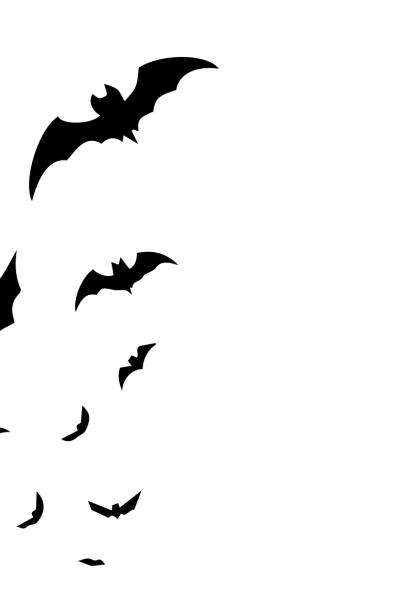



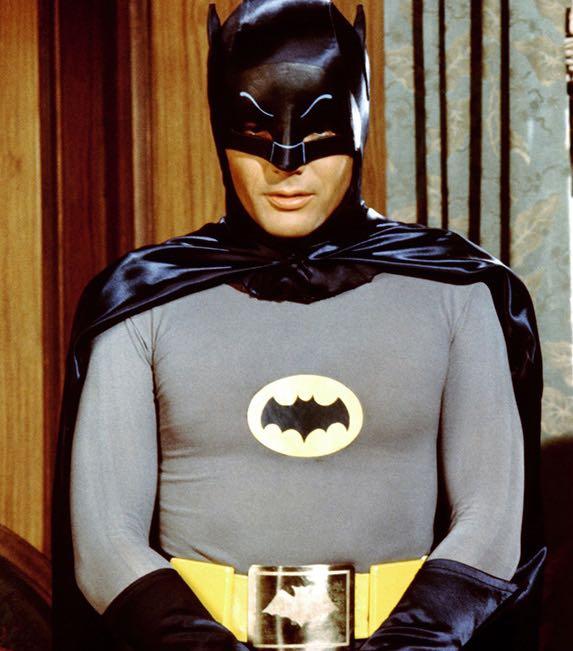

val kilmer

When Kilmer took over for Keaton’s Batman, he had a tall task at hand. Fans loved the first two Tim Burton movies and wanted to love the third film just as much. While 1995’s Batman Forever suffered from a slight lack of focus, the actor’s effective performance was a definite highlight. Not only did he exude a certain charm as Bruce Wayne, but created an overlap between the two personas. Kilmer defined the man behind the mask and treated him as a separate entity, yet very much part of the same person.





actors
christian bale
Christian Bale has the advantage of starring as the title role of arguably the two best Batman films of all time. The actor, known for his career of flawless performances, gave so much to the role that his aggression became a counterpoint to the campier Batman of the 1960s. A darker and grittier Dark Knight for the modern age, Bale reinvented the character for an entirely new generation.






will arnett

Voicing Batman for the LEGO Movie franchise, Arnett has taken the role to a whole new level. Becoming a sort of spoof on the character, the actor infuses his performances with a loving admiration for the Caped Crusader. As great as they are on their own, the movies’ best moments often stem from Arnett’s fun take on the superhero.

With a performance that suffered a bit due to the quality of the films, Clooney still rose to the occasion in his only outing as Batman in 1997’s Batman & Robin. While he didn’t quite bring the charm fans had hoped for, he still echoed a similar campiness from the original TV series and comic books, which according to some is one of the highest compliments you can receive.





michael keaton

Michael Keaton is a personality all his own. Tim Burton’s first two Batman films are good in their own right, but are very much garnished with the actor’s comedic sensibilities and carefree attitude. Arguably better at being Bruce Wayne than his alter ego, Keaton still brought his own trademarked style to the role, which helped make the movies unforgettable all these years later.

ben affleck
Affleck never quite got his chance to shine as Batman, now having left the franchise, with a final “appearance” in the Snyder Cut. Arguably the best part of Batman v Superman: Dawn of Justice, the actor played a more disillusioned version of the Dark Knight, something fans had yet to see done properly up to that point.

 george clooney
george clooney



GOTHAM CITY’S ICONIC

vigilante, Batman, is not just a comic book superhero; he has transcended the pages of comics and become an integral part of pop culture. From comics, TV and movies to video games, Batman has made his mark in every popular medium. With 80+ years of continuous publication by DC Comics, Batman has seen his fair share of ups and downs, but he remains one of the most versatile characters in storytelling, leaving a lasting impact on modern entertainment.
1. One of Batman’s greatest storylines is The Long Halloween by Jeph Loeb and Tim Sale. Set in the early days of Batman’s career, the story follows Batman, Commissioner Gordon, and D.A. Harvey Dent as they navigate the shifting crime landscape of Gotham City. Loeb’s intricate plot and Sale’s exaggerated artwork create a grandiose feel, making The Long Halloween a true Batman opera.
2. Another standout story is “Heart of Ice,” the fourteenth episode of Batman: The Animated Series, written by Paul Dini and directed by Bruce Timm. This emotionally evocative tale delves into the tragic backstory of Mr. Freeze, turning him from a C-list villain to one of Batman’s most complex rogues. “Heart of Ice” exemplifies how comic book stories can be taken seriously and resonate on a deeper emotional level.

3. Batman: Under the Red Hood by Judd Winick is another notable storyline that explores the repercussions of Batman’s actions. The story, first published as Batman: Under the Hood in comic book form, deals with the return of Jason Todd, the former Robin who was thought to be dead. The subsequent animated film adaptation rectifies some of the editorial issues of the comic and delivers a streamlined and emotionally powerful story about Batman facing the consequences of his actions.

4. Knightfall, Vol. 1 is a pivotal storyline that showcases Batman’s resilience. Written by Doug Moench, Chuck Dixon and Alan Grant, and illustrated by various artists, the story features Bane, one of Batman’s greatest adversaries, who breaks Batman’s back in a brutal fight. Despite his injuries, Batman remains determined to reclaim his city, showcasing his unwavering resolve and determination.

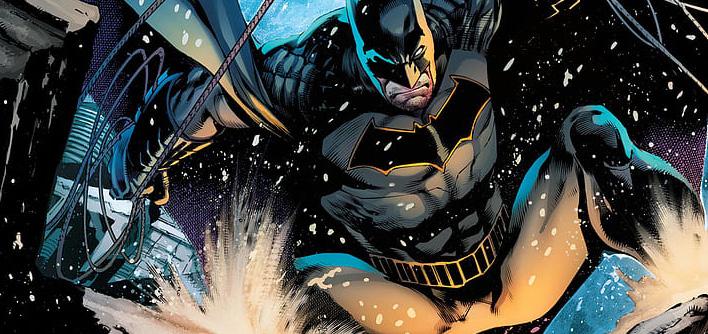
5. Justice League of America: Tower of Babel by Mark Waid is a unique storyline that explores the darker side of Batman’s character. In this story, it is revealed that Batman has contingency plans to defeat his fellow Justice League members in case they turn rogue, and Ra’s al Ghul steals and implements these plans against the League. Tower of Babel not only showcases Batman’s meticulous planning and preparedness, but also the strained trust between him and his fellow superheroes.

6. Batman: A Lonely Place of Dying by Marv Wolfman is a poignant story that highlights the importance of Batman’s allies. After the death of Jason Todd, Batman becomes emotionally withdrawn and resorts to more violent measures. However, it is the young detective, Tim Drake, who ultimately proves to Batman that he needs a Robin, symbolizing the duality of Batman’s characterthe dark and vengeful creature of the night, as well as the colorful and bright interpretation of the character.
8. Alan Moore and Brian Bolland’s The Killing Joke was an instant classic when it was released in 1988, and it is one of the most discussed and debated Batman stories of all time. Bolland’s artwork here is unparalleled and continues to endure the test of time. Moore’s (Watchmen, V for Vendetta) descent into the Joker’s past is enough to make this prestige format comic a must-read, but it’s the horrifying story of Barbara Gordon’s maiming, sexual abuse and that haunting final page that make this one of the most important Batman stories of all time.

7. No discussion of Batman’s greatest stories would be complete without mentioning Detective Comics #27, the issue that marks the first appearance of The BatMan. Created by Bob Kane and Bill Finger, this iconic issue introduced many core elements of Batman’s character, including his detective skills, Commissioner Gordon and his distinct look. Detective Comics #27 is a milestone in Batman’s history and a must-read for any Batman fan.
9. The Dark Knight Returns by Frank Miller and Klaus Janson is widely regarded as the finest Batman story ever told. This grim narrative features an ageing and retired Batman who comes out of retirement to take on mutant gangs, the Joker and even Superman, building on the groundwork created by Neal Adams and Dennis O’Neil in the 1970s. Miller’s Batman is shown as a powerful and scarred character more akin to Clint Eastwood than Adam West’s campy portrayal. In his battle on crime, he is brutal and uncompromising, making him a true badass and a force to be reckoned with. The Dark Knight Returns is frequently praised for portraying Batman as an anti-establishment figure, with his take-no-prisoners approach setting him apart from other interpretations. This mini-series is considered the ultimate Batman story, elevating the Dark Knight to legendary status in pop culture.

10. Batman: Year One by Frank Miller and David Mazzucchelli is a gripping story that investigates the beginnings of both Batman and James Gordon. It’s not simply Batman’s journey but also Gordon’s, as they create a partnership in the face of GCPD corruption. Mazzucchelli’s artwork depicts a wounded Bruce in his father’s office being inspired by the bat that will define his famous look. It’s a stunning piece of Batman artwork that perfectly captures the essence of his transformation. Miller’s work humanizes Batman by revealing his vulnerabilities and tribulations at the start of his mission, softening his voice. Batman: Year One is a masterfully written story that highlights Batman and Gordon’s parallel trajectories, making it a must-read for fans.




BATMAN IS DC COMICS’ GREATEST CONQUEROR HAVING BEEN
involved with ordinary women under the identity of Bruce Wayne (Julie Madison, Vicki Valle, Silver St. Cloud, Versper Fairchild), heroines (Wonder Woman, Black Canary, Sasha Bordeaux) and even villains (Catwoman, Poison Ivy, Talia Head). Some of them were romantic (although always tragic) and others were toxic relationships.

Let’s start with the romantic relationships.
JULIE MADISON
The first girlfriend incorporated into the Batman stories (and officially, Bruce Wayne’s first love) was Julie Madison. She was notably based on the appearance of actress Grace Kelly, doing the “damsel in distress” style of the time, and debuted very early in the hero’s life. She first
appeared in Detective Comics
31, from 1939, only the fifth adventure of the man- bat.
In this version of the Golden Age of Comics, Julie was a member of Gotham City’s high society. Although, in the first appearances, she did not have a well-defined occupation.
She broke off her engagement to Bruce Wayne to dedicate herself
entirely to her budding acting career. In the plot, Julie changes her name to Portia Storme and becomes a star. She’s disappointed with Bruce Wayne’s “lack of ambition”, lamenting that he didn’t want to work.
It is established in these stories that Batman initially considered his mission to be temporary, and that he really hoped to finish his vigilante activities and marry Julie. Obviously, after some time, the hero realized this would not be possible which caused him a lot of pain. Although, he does not show it or tell anyone about it.

Julie Madison has quickly appeared in Joel Schumacher’s Batman & Robin (1997), interpreted by Elle Macpherson.

Linda Page first appeared in 1941. In the stories, the young redhead was a somewhat vain socialite which made a good pair with Bruce Wayne. Despite starring in Batman stories for two years, the character completely disappeared after that. The character is best remembered as Batman’s first live-action girlfriend, appearing in the 1943 film series where she was portrayed by Shirley Patterson.

LINDA PAGE VICKI VALE
Photojournalist Vicki Vale is probably the most famous of Batman’s girlfriends. The reporter was portrayed in the comics as a redhead and first in 1948. She remained Bruce Wayne’s main girlfriend for quite some time until 1964. Her period of greatest relevance occurred between 1988 and 1990. In these plots, really in love with Vicki, Bruce Wayne seriously considers telling her that he is the Batman,


but after she almost got killed by the Ventriloquist, he gives up and breaks off the relationship. During that same period, she appeared in Tim Burton’s Batman – The Movie in 1989, portrayed by Kim Bassinger.
The character returned in a prominent role in Batman’s universe in 2009. In Grant Morrison’s story sequence in which Batman is presumed dead and Dick Grayson replaces him as Batman, Vicki begins to suspect that the businessman and the vigilant are the same person. In the Battle for the Cowl arc, she manages to connect the pieces together between all of Batman’s allies and deduces their identity.

Willing to reveal this secret to the press, she decides to wait and talk personally to Bruce Wayne to find out why he plays Batman. However, when the villain Ra’s al Ghul discovers that Vicki Vale knows Batman’s secret identity, he decides to kill her, but Bruce Wayne himself, saves her.

ST. CLOUD
In 1977, Batman meets socialite and event planner Silver St. Cloud and get fascinated about her. The two get together and she even discovers his secret identity. However, the fact that Bruce Wayne lives his life very dangerously is impossible to bear. After witnessing Batman in action, she asks for an end to the relationship and leaves Gotham.
She would later return to Gotham City amid her fiancé’s senatorial campaign. She considers dropping everything and staying by Bruce’s side, but again Batman stays between them.
 SILVER
DC Comics, Warner Bros. Entertainment, DC Entertainment
SILVER
DC Comics, Warner Bros. Entertainment, DC Entertainment
VESPER FAIRCHILD
Radio Show host Vesper Fairchild appeared in 1997. Intelligent and strong-willed, Vesper captivated Bruce Wayne when they met in an interview. The fact that she worked during the night made her perfect, so the hero didn’t have to keep creating lame excuses for his “disappearances”.

However, amidst the series of tragedies that hit Gotham City in a row, an Ebola virus epidemic in Contagion and a major earthquake, their romance ended up interrupted. After things got back to normal, Vesper returned to town and looked for Bruce who was now involved with Sasha Bordeaux.
At the same time, Vesper had an ongoing investigation to discover Batman’s identity, although there are no indications that she suspected Bruce Wayne. Unfortunately, Vesper ended up murdered by David Cain in 2002.
SASHA BORDEAUX
Bodyguard Sasha Bordeaux crossed Bruce Wayne’s path in 2000 after he suffered a kidnapping attempt leading the Board of Wayne Enterprises to impose armed security on him. Initially, Wayne treats her with distance because he thinks she gets in the way of his moves as Batman. Over time, however, the two created a certain complicity, and the fact that Batman disappeared became a problem. Finally, the hero left a clue for her to follow and discover that he is Batman. Surprisingly, Sasha thought she should continue serving as a bodyguard even for Batman, so she started wearing a uniform with a mask and following him on his missions.
After returning from a mission, Bruce Wayne was arrested, accused of killing Vesper Fairchild. Sasha Bordeaux was also arrested as an accomplice. Wayne escaped from jail to prove his innocence. Sasha remained imprisoned for refusing to hand over Bruce’s big secret. In jail, however, she apparently suffered an assault and died. In fact, it was a plan by the secret organization Checkmate to summon her as a secret agent. The world’s greatest detective, Batman couldn’t believe she died and soon discovered Checkmate’s plans. However, Sasha accepted the proposal, underwent plastic surgery and was trained as an agent.
Batman then began an aggressive campaign against Checkmate to take her out of it. As they couldn’t stop him, the organization gave up and allowed Sasha to meet with Batman and the two talked. In the conversation, each one confesses their love for each other but go their separate ways. Next, Sasha became Black King’s Knight of Checkmate and right-hand man to the organization’s leader, Maxwell Lord. However, when Lord revealed himself to be a villain, Sasha helped Batman take him down. With the fall, she became herself the leader of the organization.
WONDER WOMAN
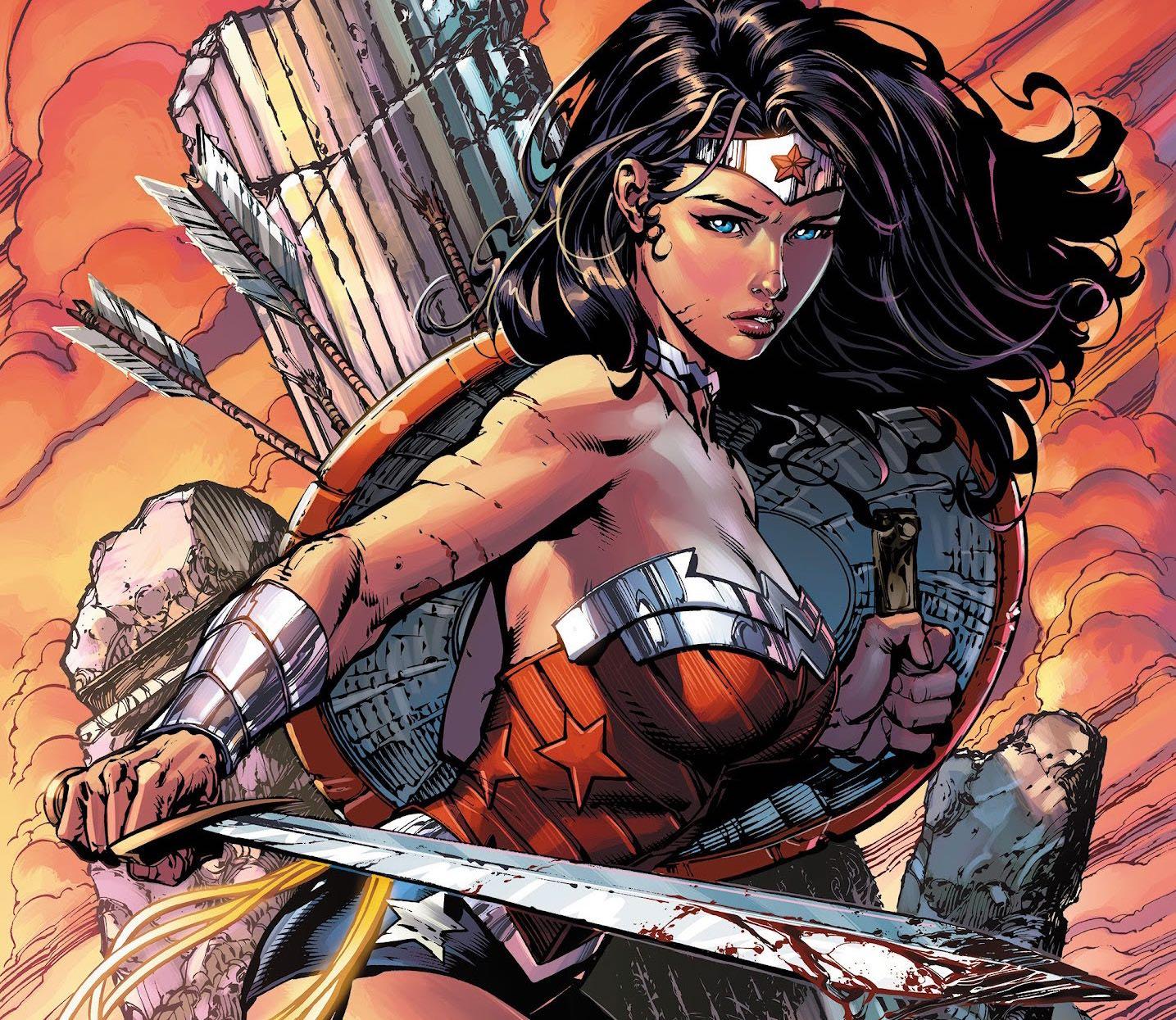
During a short period in the mid2000s, amid the adventures of the Justice League, there was a love affair between Batman and Wonder Woman. It didn’t go any further, but some sort of feeling remains between them.
RACHEL DAWES
Rachel Dowes was created by filmmaker Christopher Nolan and writer David S. Goyer exclusively for their Batman series, never existing in the comics. In 2005’s Batman Begins, Rachel Dowes is portrayed by Katie Holmes as a childhood friend of Bruce Wayne (Christian Bale). Her mother was one of the Wayne’s servants, alongside Alfred Pennyworth. Bruce and Rachel grew

up as sweethearts but grew apart after the young man returns to Gotham City and decides to kill his parents’ murders (which he fails to do). From there, Bruce travels the world, training to become Batman and only returns seven years later.
Rachel becomes a lawyer and assistant prosecutor and ends up getting involved in the mafia plots of Carmine Falcone and Dr. Jonathan Crane. At a certain point, Batman reveals to her that he is Bruce Wayne, but this ends up alienating them because she cannot live with that.

In The Dark Knight, 2008, the character was played by Maggie Gyllenhaal. Here, she’s dating new district attorney Harvey Dent (Aaron Eckhart) and, despite Bruce’s hopes of having her as a partner soon, Rachel chooses to stay with Dent before she is killed by the Joker, and Dent is deformed, goes crazy and becomes the Two-Face. Batman’s Toxic Relationships

CATWOMAN
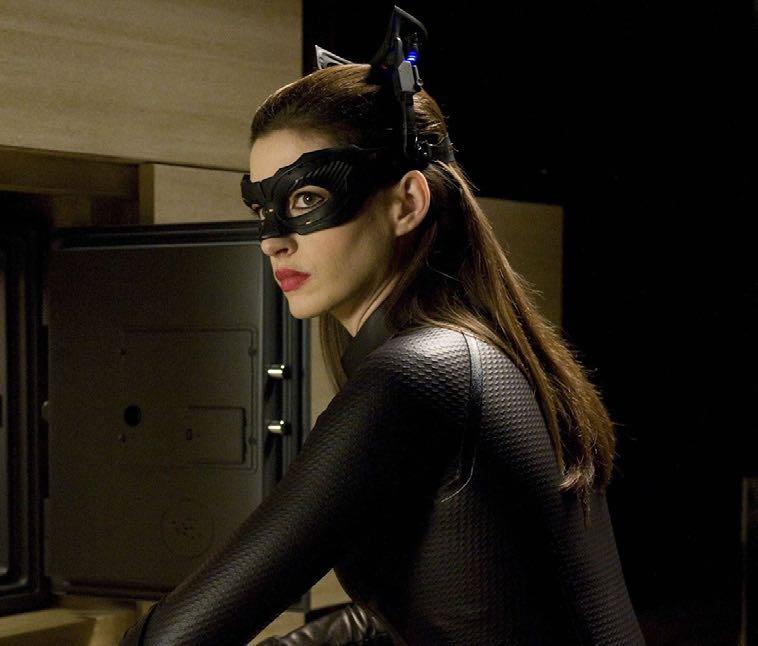

The tension between Batman and Catwoman dates to their first encounter in 1940s Batman #1 story by Bob Kane and Bill Finger. The villain’s uniform was “assembled” little by little: first wearing a dress; then, a hood with a cape; then, a hideous mask mimicking the head of a cat; and finally, the classic uniform of the Golden Age with a Batman-like mask, neckline and cape.
Eventually, the character would be off the magazines for 12 years. In the 1970s stories, some writers began to treat Catwoman as a psychopath. This was changed in the 1980s. The Batman Story: Year One from 1987 shows a hardcore version of the character. Selina Kyle is a prostitute who abandons that life to become a thief and decides to wear a uniform after seeing Batman in action. She is shown smoking, taking drugs and saying that she hates men because she “never met
one”. The plot shows an orphan who is sent to an orphanage where she suffers mistreatment and, at the end of her adolescence, runs away to live on the streets of Gotham City. This period of her life is portrayed in the TV series Gotham.
The maxiseries Batman: The Long Halloween (1996-1997) shows the beginning of the involvement between Bruce Wayne and Selina Kyle. The two meet at Gotham’s high society, where she nurtures friendships with the Falcone mafia family. There is a romance between the two at the same time that Batman and Catwoman also have their encounters. As the story progresses, there are indications that Selina is the unassumed daughter of Carmine Falcone, the biggest boss in the city. This plot is shown in The Batman (2022). The screenwriters of the 1990s opted for an anti-hero version of the (now) former villain. Selina isn’t evil, just misguided, and perhaps a kleptomaniac. Her crimes never involve violence. She is not a murderer and only steals from the rich. This plot is shown in Batman: The Dark Knight Rises.

In stories from 2002-2003 Batman decides to have a “for real” relationship with Catwoman, which involves telling her that he is Bruce Wayne. The two stay together for a while, but The Dark Knight’s paranoia leads to a breakup. Still, the two remain allies.
In the newer stories, Batman and Catwoman are occasional lovers who become full-time partners, culminating in Bruce Wayne asking Selina Kyle to marry him. The ceremony is even planned but does not occur when Selina realizes that the engagement will hinder Batman’s mission.
Catwoman has had several live action portrayals. First, in the 1960s TV series played by three actresses: Julie Newmar (in the first and second seasons), Lee Meriwether (in the movie) and Eartha Kitt (in the third season). In 1992’s Batman Returns by Tim Burton, Catwoman is played masterfully by Michelle Pfeiffer. In 2004, the film Catwoman, starring Halle Barry, was released. Batman: The Dark Knight Rises brought a version of Catwoman in the skin of Anne Hathaway; and The Batman stars Zoe Kravitz in the role.
TALIA HEAD
In the 70’s, on a mission chasing the League of Assassins, Batman met the mercenary Talia Head whom he fell in love with. Too bad he soon discovered that her father, Ra’s Al Ghul, was the leader of the terrorist group.
Despite The Dark Knight considering Ra’s as one of his worst enemies, the passion for Talia was so strong that she began to experience a conflict of interests between her lover and her father, gravitating around the two as the stories emerged. After his father recruits the detective for a mission against a terrible common enemy, the two lovers spend a little more time together and Talia becomes pregnant.
who becomes the new Robin. Over time, Talia began to have a milder behavior, showing herself almost as a reluctant ally, while Damian had his impulsive behavior softened by his father and he assumed the role of Robin with honors.

In the film Batman: The Dark Knight Rises, the character Miranda Tate, played by Marion Cotillard, is presented as an executive at Wayne Enterprises who will help Bruce Wayne develop his philanthropy, but in fact, it is revealed at the end to be Talia, daughter of the character Henri Ducard, Ra’s Al Ghul from Batman Begins, played by Liam Neeson.
POISON IVY
Poison Ivy appeared in 1966, and her first stories explored a great tension between the villain and Batman. However, later, a situation prevailed in which Pamela Isley is in love with Batman, more than he is with her. However, in recent years, Poison Ivy has shown little interest and tries to kill the hero without mercy.

However, when she realizes that the pregnancy affects The Dark Knight emotionally and compromises the mission, Ra’s and Talia create a cunning plan in which they simulate a miscarriage. An angry Batman carries out his mission but is painfully dismissed by Talia. Batman leaves, ignoring the farce, and the end of the story shows the child alive and given up for adoption. Talia takes control of LexCorp as part of a plan by the hero against Lex Luthor. After the “death” of Ra’s Al Ghul, another of his daughters, Nyssa Raatko, brainwashed Talia and made her a real villain. She appeared sometime later to show Batman their son, Damian Wayne,
DR. SHONDRA KINSOLVING
Bruce Wayne met Dr. Shondra Kinsolving when she was responsible for the recovery of Tim Drake’s father, Robin III, who had been paralyzed in a tragedy. She was introduced in Batman 486, in 1993. Later, when Batman is defeated and has his backbone broken by Bane, Bruce is treated by Shondra, and this brings them closer. In fact, they start a romance. Before Bruce is fully recovered, Shondra is kidnapped by her adoptive brother, who is a criminal. Even in a wheelchair,


Wayne organizes a rescue mission to save her, but the doctor is forced to carry out a series of atrocities for her brother, and she enters a catatonic state.
She appeared again, years later, when Batman is again badly hurt in 2002. She participates in Bruce’s surgery as an assistant to Dr. Tommy Elliot who was secretly the villain himself.
JEZEBEL JET
In Grant Morrison’s long run as a Batman writer, Jezebel Jet was Bruce Wayne’s main love interest, first appearing in Batman 656 in 2006. Introduced as a former model who runs a small African country, Jezebel turns out to be an agent of a terrorist organization whose mission is to destroy Batman. Thus, she helped in the plan of the villainous Dr. Hurt to kill Bruce Wayne but was unsuccessful, of course.









 BY TYSON D. YURAI
BY TYSON D. YURAI
1. He Can Sing!
As seen in Justice League Unlimited episode, “This Little Piggy,” when Kevin Conroy sang “Am I Blue” in his most soothing croon as Batman.
2. Was Almost Bane’s Brother
A story told in Gotham Knights #33-36, where the two put aside their hatred for each other with the possibility of brotherhood and friendship. Bane joined the Bat family before it was revealed that Thomas Wayne was not his father.
3. Father of Helena Wayne

Debuting in DC Super Stars #17 as part of the Earth-2 Universe, Helena Wayne is the daughter of Bruce Wayne and Selena Kyle and has made sporadic appearances over the years. She is a separate character from the Helena Bertinelli of EarthPrime that isn’t related to Batman.
4. Has Studied Magic
On two separate occasions in World’s Finest #14-18 and Justice League Dark: Witching Hour, Batman has been known to dabble in magic but found it too difficult and abstract to utilize in his regular repertoire.
5. Likes His Steak Well Done
Towards the end of Kingdom
Come, when all of the fighting has subsided, he, Superman and Wonder Woman enjoy a friendly meal. While Clark and Diana order sensible things, Bruce orders his steak crisp.
6. Was Once Kirk Langstrom
In the Justice League: Gods and Monsters universe, it’s unknown what happened to Bruce Wayne, but in his place, Kirk Langstrom, Man-Bat on Earth Prime, is the deadly and vampiric Batman.


7.
Convinced Alfred to Stay the Family Butler
In The Batman Chronicles #5, it’s shown that a child Bruce Wayne convinced Alfred to stay when he wished to return to England, right before his parents passed.
8. Had the Batboat stolen by Deadpool
In an unofficial cameo in Marvel Comics #1000, Deadpool is seen driving away in a familiar boat as a very familiar superhero angrily yells at him while stuck in the water.

9. Had a Physical Education Course at the University of Victoria in Canada
Because Batman is the peak of human ability, of course there’s a class dedicated to the science of how he works and how to get into the same relative shape that he’s in.
10. Has Been A Patient at Arkham
Shadow of the Bat #1 shows us one of the first instances of Batman being held in the infamous asylum and could serve as partial inspiration for 2019’s Last Knight on Earth.


11. His Ears Are Projectiles
In Batman and Robin #22 and Detective Comics #1029, Batman uses his ears in quite the creative fashion, ejecting them into the face and eyes of the villains he’s fighting.



12. Learned How to Throw boomerangs from an Australian Circus Performer
In the early days of Detective Comics (#244, 1957), some aspects of Batman’s training needed explanation and this was what we got for how he can throw batarangs so well.
13. The Batcave Originated in a Batman TV Show
At least a year before it made its way to the comics, the 1943 Batman serial introduced The Bat’s Cave as the hideout for Batman and Robin as they primarily just utilized Wayne Manor as a base of operations in the comics.
14. Has Bombs on the Moon
Because Batman always has a plan for everything, Justice League #1 referenced one of Batman’s contingencies for space-based attacks and foreshadowing that he might have other weapons there, too. We’ve already seen that he keeps spare Bat-Armor there (Superman #5, 2016).
15. Was 25 When He Became Batman
While Bruce is known to be young when he becomes Batman, the Year One stories place a definite age at which he donned the cowl - one year older than Mr. Beast!
16. He Sometimes Operates Under the Criminal Alias of Matches Malone
Introduced in Batman #242 from 1972, Bruce has taken on the identity of Matches Malone many times to collect information on the criminal underworld and will sometimes commit arson to gain trust, hence the name.
17. Gotham City is Literally Cursed
Batman: Dark City established that a demon summoning ritual conducted by Thomas Jefferson and other founding fathers of Gotham left the city eternally cursed to experience crime and depravity.
18. He’s Terry McGinnis’ Actual Father
The Justice League Unlimited finale, “Epilogue,” expands on the situation that led to Terry becoming Batman and reveals it to be a plot by Cadmus to keep the Batman lineage going if Bruce were to ever pass. Though, Terry isn’t the only child Bruce had in that universe if one acknowledges Batman Beyond 2.0 #28. If you know, you know!
19. He Used to Time Travel with the Help of Hypnosis
Batman’s early years were a weird time, especially in Batman #24 from 1944 where Dr. Carter Nichols was introduced and used hypnosis to send the Dynamic Duo on adventures through time.
20. Has Defeated Darkseid Twice Batman can beat anyone with prep time and in Final Crisis #7 and Batman and Robin #33, he did just that with a God killing bullet and a suit of armor forged by the Justice League itself.



IN THE WORLD OF GEEKDOM, THERE ARE AN ENDLESS
amount of debates that aren’t really debates at all, yet they still pop up from time to time, usually when alcohol is involved. A few examples include: Did Han shoot first? Was the Game of Thrones ending bad? Is Cobb awake at the end of Inception? The answer to all of these nondebates is a resounding “Yes!”, but I’ll let you all argue about them over your craft beers while your girlfriends just want to go home. I, on the other hand, am here to discuss another non-debate that seems to have gained unnecessary traction over the years. One that I have found myself in the middle of on more occasions
than I’d like to admit, alcohol or not. An argument that I have a very hard time believing is still even a thing. And that is, of course, the question of whether or not Batman is actually a “superhero.”


This argument stems from the idea that in order to be a superhero, you need to be “super.” Meaning, you must possess some sort of super abilities or powers. So, because Batman does not possess any of these things, he is not actually a “super” hero, and is, in fact, just your standard, not-toospecial, “hero.” This is, of course, a made-up rule. It has never been a thing. However, NeckBeards within Geekdom have done their damnedest to use this “solid evidence” to denounce Batman as a superhero for years now. Well, NeckBeards, I pray to Zod that none of your favorite superheroes include Iron Man, The Punisher, Green Arrow, Black Widow, Star Lord, Nick Fury, Rorschach, War Machine, Hawkeye, and countless other non-powered super-heroes because…well…that would make no Zoddamn sense, now would it?

My favorite excuse for Batman not being a superhero is, of course, “he’s just some guy with money.” Even typing that makes my butt clench with fury. I guess I’m confused as to what it is people think Batman actually does with all his money— bribe criminals into submission? He’s not Venmo-man! I assume what people mean is he uses his money to buy cars, gadgets, and other things and those are what make him so good at what he does. Well, I’m sure you can go on YouTube and find



half a dozen teenage millionaires wearing armor, throwing smoke bombs, and whipping tiny bladed boomerangs at each other, but I do not see them becoming vengeance or the night. But let’s entertain the idea for a moment that money is the sole reason Batman is successful at fighting crime: Please remind me, because my memory must be going, of all the times Mark Zuckerberg disarmed a doomsday device while being shot at, or the dozens of various crime organizations Bill Gates shut down with his bare hands, or that one time Warren Buffet fist-fought a godlike alien and kicked its ass around town. Huh! Weird! I just can’t seem to think of any, can you?! The only superhuman thing a billionaire like Jeff Bezos is doing is somehow getting me my Amazon packages yesterday and that’s because I pay him for it.
Now, let’s get down to the good stuff: why Batman is a superhero.




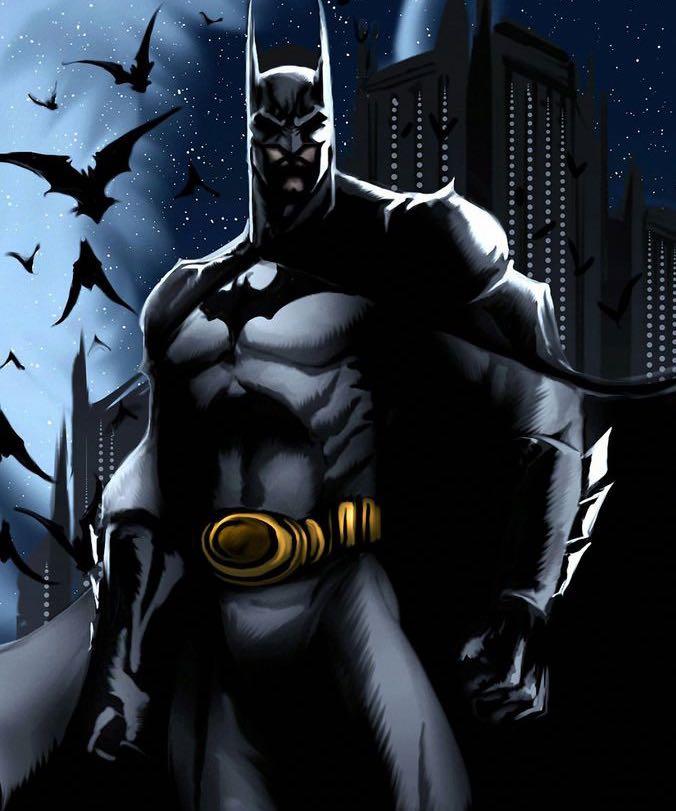

Regardless of his fortune and lack of super powers, Bruce Wayne is not “just some guy.” And to think as much would be ridiculous. He spent his entire young adult life training, all around the world, to be the best at, well, literally everything. After his parents died, he vowed to rid Gotham of crime, which meant pushing himself to the edge, mentally and physically, in every possible way in order to fulfill that vow. The guy has mastered 127 different forms of martial arts, achieved peak human conditioning and strength, gone through various courses and training to raise his intellect and IQ to genius levels, learned detective skills that make Sherlock Holmes look like Scooby Doo,Scooby-Doo, and has a willpower stronger than the knees that broke his unreasonably strong and perfectly sculpted back! We’ve all seen people push themselves harder than we thought possible, maybe because there was something driving them further than everybody else, and Bruce Wayne takes that idea to a whole new level. Some would even say, superhuman levels. See what I did there? Bruce Wayne isn’t a normal person who bought his way into crime fighting; he’s a broken human being who pushed himself to every possible limit there is to be the very best and he used all of the resources at his disposal to aid in his pursuit of a crime-free Gotham.


So, the reality is, Batman is a superhero because he doesn’t have any superpowers. He pushed himself to the strength, speed, agility, and intellect of Captain America without ever needing the cheatcode that is Super Solider Serum to do it. All he needed was some old-fashioned family trauma and an unhealthy amount of strong will. In fact, in basically every iteration of Batman in which he does gain some kind of superpower, it isn’t like, “Oh, hey, Batman can fly now.” Nope! The dude becomes a god! Other superpowered beings crap their spandex when “the human” gets all the superpowers you idiots
keep complaining he didn’t have before! So, let him be a human, ‘cause he scares the hell outta the other heroes when he does have powers. And as far as the definition of “superhero” goes, a superhero is someone who fights crime on the same level of others who do have powers. That’s all. No powers required, just the ability to keep up and stay alive. Which Batman, the superhero, has very much done. Thank you for coming to my TED Talk.




BATMAN HAS AN INCREDIBLY RICH TAPESTRY IN COMICS WHICH INSPIRED


Countless movies, TV series, and video games. For those curious of making that leap into Gotham City, there are several recommended starting points for new readers. So instead of venturing out into 80 years of history, we’ve wrangled together our top 5 recommended storylines to help get you familiar with the world’s greatest detective.

BATMAN: THE DARK KNIGHT RETURNS





 by Frank Miller follows an older, more brutal Bruce Wayne who comes out of retirement to fight crime in Gotham. This classic story has influenced many Batman adaptations and can be enjoyed as a standalone or with its sequels.
by Frank Miller follows an older, more brutal Bruce Wayne who comes out of retirement to fight crime in Gotham. This classic story has influenced many Batman adaptations and can be enjoyed as a standalone or with its sequels.
BATMAN ARKHAM ASYLUM: A SERIOUS HOUSE ON SERIOUS EARTH

by Grant Morrison features a unique art style by Dave McKean and tells the story of Batman trying to navigate through an overrun Arkham Asylum filled with his adversaries. Fans of the Batman: Arkham Asylum video game will recognize elements from this story.



BATMAN: THE LONG HALLOWEEN
by Jeph Loeb and Tim Sale follows a young Batman as he tries to solve a serial killer case in Gotham. This story explores Batman’s journey to understand himself and the villains of Gotham and is known for its gripping storytelling.



BATMAN: THE KILLING JOKE

by Alan Moore and Brian Bolland is regarded as one of the best Batman comics and is essential reading for new readers. The story showcases the Joker’s attempt to break Commissioner Jim Gordon and offers insights into the character’s origins and motivations.
BATMAN: YEAR ONE
by Frank Miller and David Mazzucchelli shows the early days of Batman and his struggles to take down mobster Carmine Falcone, while also introducing Lieutenant James Gordon as he tries to catch the masked vigilante. This story is similar in tone to the 2022 film The Batman.
These five comics are recommended starting points for new readers who are interested in diving into the world of Batman comics. They offer iconic storylines, unique art styles and influential moments in the history of Batman. Whether you’re a casual fan or a newcomer to the world of comics, these stories are sure to captivate and entertain.





DETECTIVE COMICS #27
Publisher: Detective Comics, Inc. | Writer: Bill Finger | Artist: Bob Kane

COVER PRICE: $10 | CURRENT ESTIMATED VALUE: $1.5 TO 4 MILLION (DEPENDENT ON CONDITION)
RETRO REVIEW

artists and writers putting their own spin on the tale. In a 2014 New 52 reimagining of the story, writer Brad Meltzer implied that the criminal who fell into the acid, Alfred Stryker, would become the Joker. All I know is that Gotham would be a great deal safer if they installed secure handrails and lids on their chemical vats.
Even after eighty plus years Detective Comics #27 is still a wild read. As was the norm in the infancy of comics, Batman was just one of several characters with stories throughout the issue. Superman creators Jerry Siegel and Joe Shuster contributed “Slam Bradley” and ‘Spy” tales to the anthology book. The infamous cover to the issue showcased Batman in all his Golden Age glory. Oddly enough, as the cover proudly presented ‘Batman’ as the star of “The Case of the Chemical Syndicate,” his name is repeatedly hyphenated throughout the book as ‘The Bat-Man.’ The hyphen was undoubtedly meant to invoke a gothic horror feeling but was dropped by the time Batman #1 in 1940. The first few panels introduce us to friends Bruce Wayne and Commissioner Gordon (no first name given). Gordon gets a phone call detailing a recent grizzly murder and leaves to investigate, allowing his buddy Bruce to inexplicitly tag along out of feigned boredom. Many of the key elements that we love 9.5/10
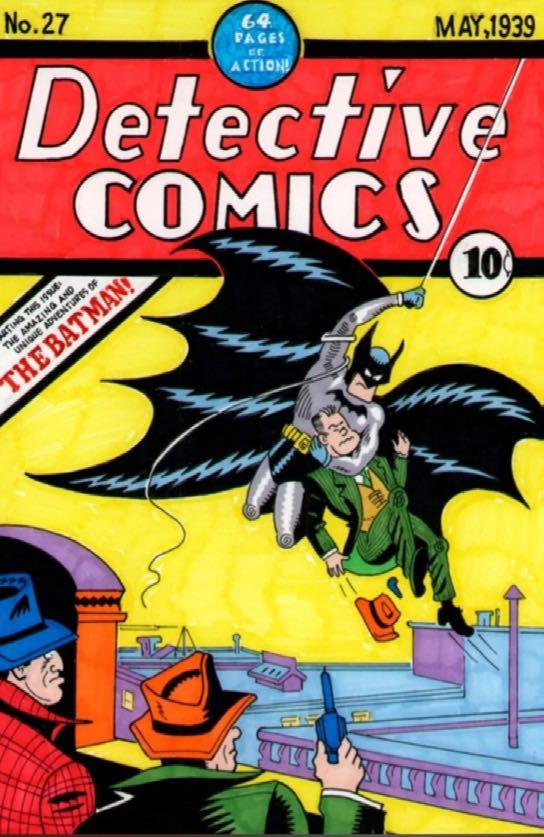


about Batman are introduced in this milestone issue such as Batman’s alter ego remaining a mystery. In fact, readers weren’t informed until the last panel of the story that Bruce Wayne is Batman (gasp). If you’re a fan of Batman’s ‘no-kill’ rule, you’re going to be in shock because not only does Bats kill, but he does it with glee - flipping one criminal off a roof and another into a vat of acid while remarking that it’s a “fitting ending for his kind.” “The Case of Chemical Syndicate” storyline was revisited on several occasions with

DETECTIVE COMICS #33
Publisher: Detective Comics, Inc. | Writer: Bill Finger and Gardner Fox Artist: Bob Kane and Sheldon Moldoff

COVER PRICE: $10 | CURRENT ESTIMATED VALUE: $500,000 (DEPENDENT ON CONDITION)
RETRO REVIEW
Debuting in November of 1939, what makes this issue extra special is the two-page spread the precedes nearly a dozen anthology stories. In the two-page story “How Batman Came to Be”, we finally get the origin of Batman that we know by heart decades later. We are introduced to Joe Chill as well as Thomas and Martha Wayne. This is arguably one of the most important issues in the establishment of the Batman mythology. Another interesting aspect is that for the first time we see that Batman has a special area 9.0/10

every movement. While that level of exposition was necessary to move the story along, it also made Batman look psychotic. All things considered, with Batman still in his infancy as a superhero, this is a fun issue. You can tell the art style is developing as are the depictions of action in the book. Batman as a character was developing into the hero that we know today. Sure, he was shot, used a gun himself and was concussed, but he was still Batman! inside of Wayne Manor that he uses to develop his weapons. It is a sort of proto-Batcave as readers were yet to be introduced to the Bat’s infamous hideout. For me, this issue highlights the importance of why Robin is introduced five issues later. Throughout the issue, Batman provides detailed exposition, detailing his every move and thought aloud. I can only imagine the criminals of Gotham City (actually, Gotham wasn’t introduced yet. Batman identifies the city he’s in as Manhattan) paralyzed with fear as a winged man came swooping down upon them to foil their dastardly schemes all the while explaining his


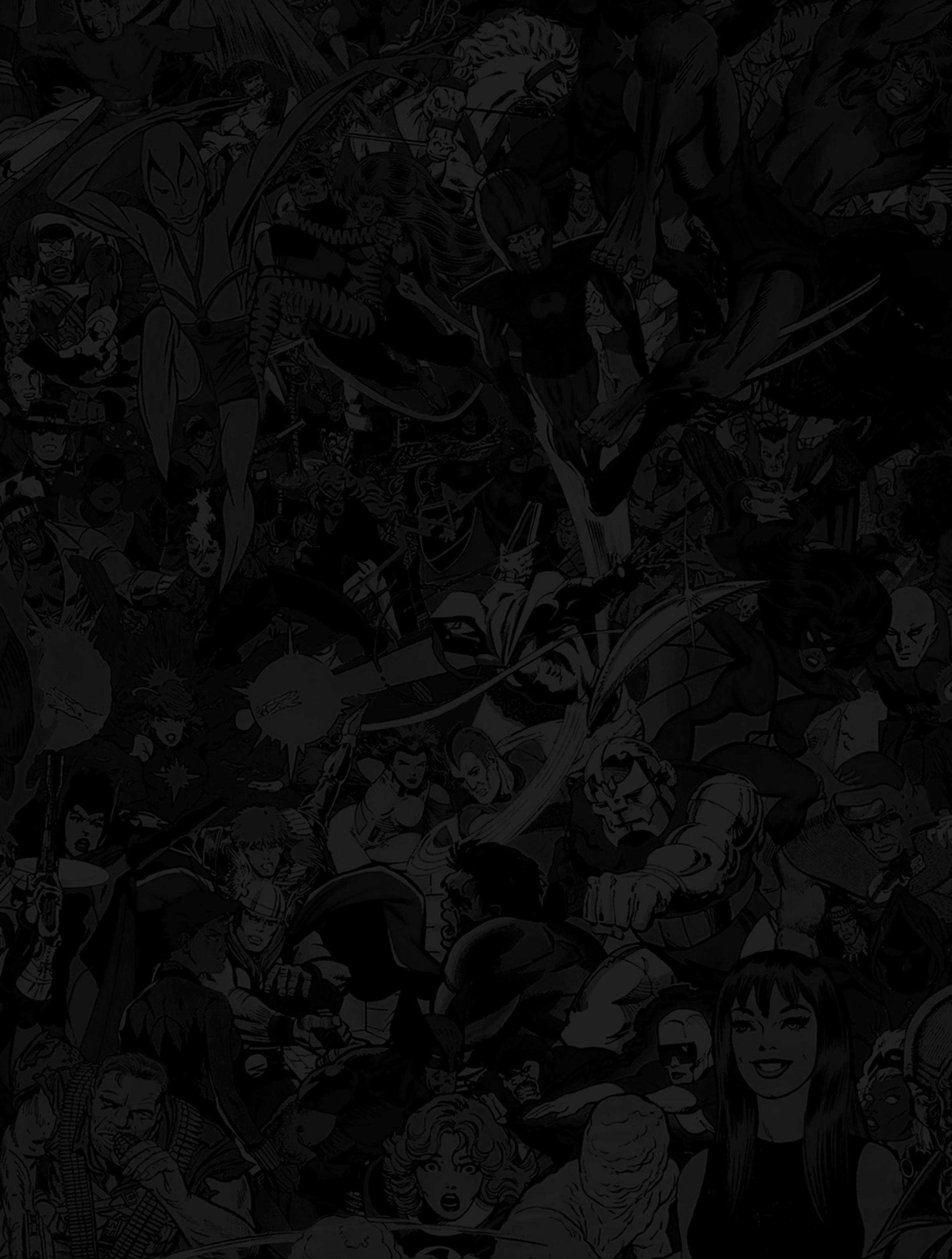
BATMAN #1
Publisher: Detective Comics, Inc. | Writer: Bill Finger | Artist: Bob Kane
COVER PRICE: $10 | CURRENT ESTIMATED VALUE: $1.6 MILLION (DEPENDENT ON CONDITION)
RETRO REVIEW

What’s not to love about the Dark Knight’s titular character debut? In one issue, we get great examples of why Robin is so important to the Bat-family and the introduction of several iconic villains including the Joker, Catwoman and Hugo Strange. Despite a declaration that, “…I hate to take human life, I’m afraid this time it’s necessary!” Batman’s




one rule, no killing, was yet to be introduced into the Bat-mythology as Batman hangs a criminal to death from his Batplane moments later. The depiction of the Joker is damn near perfect. Sure, the Joker evolved since his debut like most of our favorite Golden Age characters, but he’s never strayed too far from his maniacal and homicidal roots.
It’s truly a shame that from start to finish the only credit goes to Bob Kane and the acknowledgment of Bill Finger’s contributions would take decades. Readers were given a one page spread dedicated to the work of Bob Kane but there was not a mention of Bill Finger.

BATMAN #59

Publisher: National Comics

Publication | Artist: David Vern Reed
Colorist: Bob Kane and Lew Sayre Shwartz




RETRO REVIEW
Enter the Silver Age of Comics. Enter Deadshot. Yes, the Deadshot you know and love from the Suicide Squad movie except in his first appearance, he looked like Zatanna and acted like a classic one and done villain. I know a lot of fans detest this time in the publication of the Dark Knight. Long gone were Batman’s vigilante ways. Both he and Robin were now a super-police duo. The darker tone of the last decade was replaced by a jovial and whimsical theme. I love that Batman at one point, afraid that
Deadshot masquerading as a hero is going to replace him, refers to himself a “prima donna.” The Silver Age of Batman comics is largely remembered for the whacky, out of this world plot lines and characters. I’ve always found this era to be fascinating. The zany costumes, the lighter themes and crazy stories are a constant reminder of why we need a Light Knight every now and then. You can probably count on your hands the number of times Batman smiled and most of them came from the 50s and 60s. This is the era where we get a live action Batman on television. The camp of Batman ’66 and the Batman comics stand in
stark contrast to the grim realities of the Civil Rights Movement, Korean War and Vietnam War. Of course, this change in tone was both endemic and problematic for the DC line of superheroes, most of which were canceled by the end of the 1950s. Batman was largely indistinguishable from other heroes like Superman and Green Lantern. With drooping sales and stagnant storylines, it was only a matter of time before the Dark Knight changed or faced cancelation.
BATMAN #259
Publisher: Detective Comics, Inc. | Writer: Denny O’Neill | Artist: Irv Novick and Dick Giordano

RETRO REVIEW

COVER PRICE: $60 | CURRENT ESTIMATED VALUE: $135 (DEPENDENT ON CONDITION)
his abhorrence to guns. The trauma of his parents’ death resonates in Batman’s mind and his hatred of firearms serves as a crystal-clear extension of that trauma. Batman is faced with fear in this issue, and he is able to overcome that fear, one of the qualities that defines his heroism. This story is dedicated to Bill Finger, who had passed away shortly before the release of this issue, we is fittingly noted as a “friend.”

Hitting shelves in December of 1974, easily one of the coolest aspects of this issue is the team up between superhero icon Batman and pulp hero icon the Shadow, who determines Bat’s secret identity but promises to keep it a secret. I could also say that I love this book because it features legendary writer Denny O’Neill and legendary artist Dick Giordano. Denny had saved Batman


from cancelation by trimming by ridding Batman of much of his extended cast of characters, retiring some (sorry, Ace the Bathound) and outright killing others (sorry, Batwoman). Denny’s gritty writing style was exactly the shot in the arm Batman needed. This is the style of Batman writing and art that I grew up with, so it holds a special place in my heart. I love this issue because this is where we as readers really start to hear Bruce Wayne articulate
9.0/10 VERDICT

BATMAN: THE KILLING JOKE
Publisher: DC Comics | Writer: Alan Moore | Artist: Brian BollandRETRO REVIEW
1988’s The Killing Joke redefined the relationship between Batman and the Joker as well as Batman and his audience for decades. If Denny O’Neill dimmed the lights on Batman, Alana Moore shattered them sending Batman into darkness. The Killing Joke is the kind of comic book you’d recommend to people who don’t like comics. It is a dark and haunting tale that brings us kicking and screaming into an R rated Batman tale. Moore’s writing on this book is undeniably brilliant. The tale focuses on two different time periods serving as an origin story of sorts and a study in the dynamics of Batman and Joker’s relationship. Bolland’s art superbly matches the edgy tone of Moore’s writing. This is the story that influenced every media adaptation of Batman outside the comic books for good or for bad. The Killing Joke is the story that redefined the relationship between the Clown Prince of Crime and the Dark Knight





for decades as well as put Barbara Gordon in a wheelchair for almost as long. Oddly enough, although I generally bemoan the dark and gritty nature of the book, placing Babs in a wheelchair provided DC Comics and the comic book reading community with a hero they could look up to that was both active and disabled. Despite the Joker not knowing that Barbara Gordon was Batgirl when he
shot her, he inadvertently gave us one of the greatest heroes in all of comic history, Oracle. If you’ve ever wondered where the “one bad day” expression came from in Batman mythology, this is it. “One bad day” is a paraphrased reference to the origin of the Joker and all it takes to separate a hero from a villain.
BATMAN: THE DARK KNIGHT RETURNS
COVER PRICE: $2.95 |
CURRENT ESTIMATED VALUE: $150 (DEPENDENT ON CONDITION)
RETRO REVIEW

What most modern fans will refer to as Frank Miller’s magnum opus graphic novel originally was published as a four issue limited series in 1986. The Dark Knight Returns was the name of the first issue that was applied to the entirety of the series upon its collection as a single graphic novel. Whereas the Killing Joke feels both fresh and timeless, The Dark Knight Returns is most definitely a product of its time


and of its dark and twisted creator. Any semblance of campiness was eradicated with the publishing of the Dark Knight Returns. Whatever grittiness/darkness was reintroduced into the world of Batman by O’Neill and Moore, Miller’s book amplified exponentially. Batman: The Dark Knight Returns focuses on Bruce Wayne/Batman to come to grips with who his is as a person to overcome his conflicted nature. A retired Bruce Wayne is forced back into the life that he had retired decades previously. The conflict emerges in the form of the duality of Batman and Bruce Wayne. The conflict exists on an internal level as Batman comes to realize that he can




either be Bruce Wayne or Batman, not both. In the end, after faking the death of Bruce Wayne, he continues his work as Batman underground, undisturbed and more determined than ever. This is the first Batman graphic novel I read as a child. Like many, I was unaware of its existence as a limited series and discovered it as a collected graphic novel. In the years to follow DC and Frank Miller produced multiple sequels, tie-in and spiritual sequels but nothing has touched the original and I doubt anything ever will.
VERDICT
9.5/10
Publisher: DC Comics | Writer: Frank Miller | Artist: Frank Miller and Klaus JansenRETRO REVIEW
BATMAN: WAR ON CRIME
Publisher: DC Comics | Writer: Alex Ross and Paul Dini | Artist: Alex RossCOVER PRICE: $9.95 | CURRENT ESTIMATED VALUE: $40 (DEPENDENT ON CONDITION)
Let’s start by addressing one of the coolest aspects of this spectacular book; the beautiful tribute the “Real Bat-Man” Bill Finger. As a comic book and history fan it was great to see Mr. Bill Finger get a shout out in a DC book that acknowledged his contributions to the character. Without Bill Finger, there is no Batman. Several of the latter entries on this list focused on the darker, grittier aspect of the Dark Knight. Batman: War on Crime focuses on the more human aspects of

the character. This 1999 treasury prestige format graphic novel focuses on Batman’s quest to save a young boy from going down the wrong path. Batman is largely aware that he waged a war on crime that is impossible to win but he takes solace in the knowledge that he can win some of the battles. At a time where Batman was largely known for his vehicles and tech, none of that appears in War on Crime. We can debate whether Batman’s cowl looks best when his eyes are covered or when you can see them. In War on Crime, we can see the

beautifully rendered eyes and face of Batman by the master Alex Ross. It allows us to see Batman as both a dark and mysterious figure while simultaneously allowing us to see his compassion and soul. Although the book is perfect from start to finish, the standout scene for me is when Batman approaches a child who lost his parents in a shooting, similar to Bruce Wayne, as he pleads with the child to not give in to the darkness. Batman and the child, Marcus, embrace just after pleading with him “not to become what killed our families.” It’s a touching, powerful scene that will be etched in my memory forever.
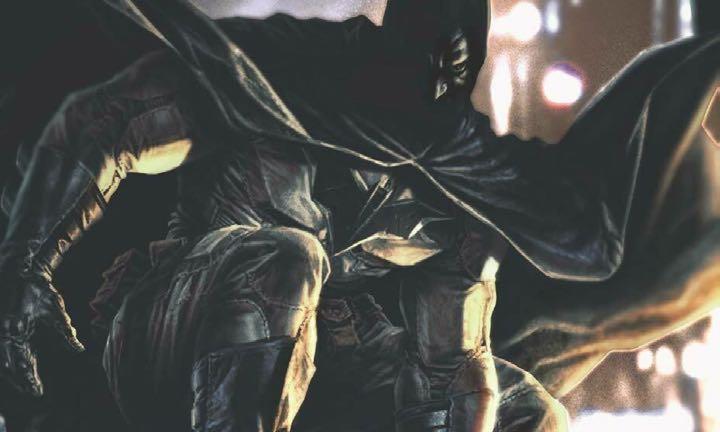





‘‘YOU WANNA GET NUTS? C’MON! LETS GET NUTS!’’
Despite the Joker’s musings that Batman can be predictable, his fans are given reason to think otherwise, and that’s one of the features of the man and the symbol that makes him so enthralling. This is comprised of a few key facets including: his determination and will, his context, and the psychology behind the man under the cowl.
Take the iconic quote mentioned above by Keaton’s Batman as a prime example of the man’s unpredictable nature. The specific scene shows Bruce Wayne attempting to tell Vicki Vale who he really is before being brashly interrupted by the Joker and his henchmen. Bruce Wayne, in the briefest of moments, lifts his metaphorical mask and shows the Joker who he truly is. The ultimate irony is that he reveals his true self to the wrong person, and it exposes to the audience that this is a man very aware of his own dark side and volatile nature, each revealing
themselves underneath the delicate façade of Bruce Wayne. It also tells us he is capable of anything at any given time. His determination and will to succeed in dispensing justice reveal another unpredictable aspect of Batman’s nature, with many confrontations pushing the man into some morally questionable turf. This determination and will to act is an area of great conflict and moral ambiguity, so let’s talk about

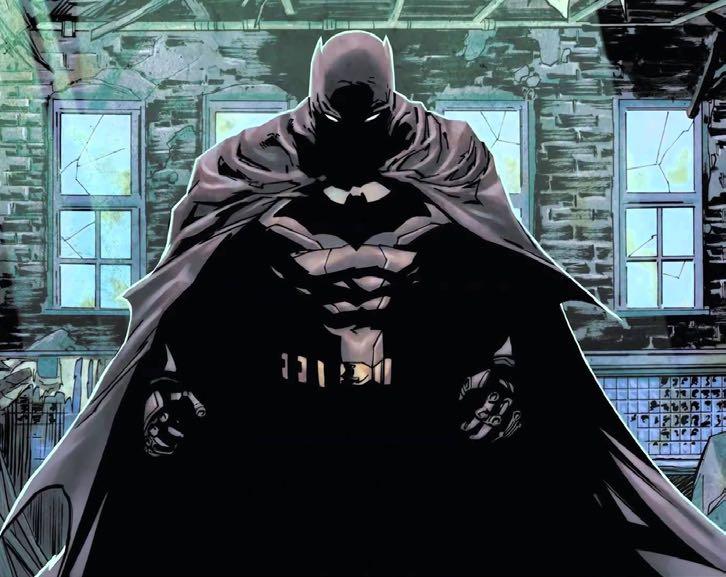
Batman’s rules or rather, his one rule and even that rule is fraught with grey areas. Batman’s thou shalt not kill rule has been compromised from the very beginning. Comic fans first learn of the Dark Knight’s rule in 1941’s Batman #4, following an era of guns, public hangings and random stabbings. The rule was introduced by Bill Finger in a time of censorship and a change in the moral climate towards violence in comics during the early part of WW2. Despite this insistence on no killing, Batman has

often skirted this rule or flat out ignored it. Key examples of this that leap to mind include the demise of Ra’s Al Ghul in Batman Begins, Penguin’s henchmen in Batman Returns, as well as several criminals at the hands of Batfleck.
The extreme horror of not knowing what fate awaited you at the hands of the dark vigilante was an effective weapon against Gotham’s most notorious criminals and a hefty outcome for criminals relying on the man’s predictability to subvert a death sentence.




Consider the background of Batman: a man who witnessed the brutal execution of his parents as a young child. This was a watershed moment for the Caped Crusader as others would normally elect this personal trauma to force them into a life of reclusiveness or send them down a path of villainy. Bruce Wayne elects to walk the path less travelled and instead use this personal trauma as the catalyst for his lifelong campaign of dispensing justice to

Gotham’s hive of scum and villainy as the city’s dark vigilante. If we think about that for a moment, Bruce Wayne and Batman, by choosing to walk this path, are extremely unpredictable and represent both the conflicted nature of the man and the complexity of the life he lives. Both Bruce Wayne and Batman represent the Jungian philosophy of our darker shadow self- though in the case of Batman, this is brought to extremes.
The last point is Batman’s sheer will and determination to dispense justice at almost any cost. The man puts life and limb on the line, and it is this absolute drive to deliver retribution at any cost that leads him into powerful conflicts and scenarios. A lesser superhero would back down and call it a day, but Batman is like a terrier with a delicious Bat bone and cannot let go. This is exemplified in the final act of The Dark Knight. Ledger’s Joker has Gotham living in a state of terror and chaos, resulting in a final act of morality involving two ferries. Inspired by Alfred’s story of a scorched earth strategy to capture a bandit, Bruce Wayne/ Batman (with the aid of Wayne Industries) creates a supercomputer designed to turn every phone in Gotham into a microphone and create a sonar device Batman taps into to capture the Joker. Like every conflict and scenario, none of this is simple, and means that Batman must compromise the privacy of every citizen in Gotham to achieve his outcome. In addition, he must fight off several of Gotham’s finest in order to rescue the hostages that Joker has cleverly disguised. The entire act is a masterstroke of Batman’s will and determination, along with his unpredictability in order to win. It proves that he is both the Dark Knight that Gotham needs and deserves.



LIKE OTHER FAMOUS CHARACTERS OF TV AND FILM HISTORY,

(Doctor Who and James Bond to name a few)The man behind the mask of Batman has had several iterations throughout television and film history. I’m also resisting the temptation to rank them but rather celebrate most versions of our famous Dark Knight. Each of the iconic actors playing Batman are a symbol for their time, ranging from the hippie movement to the western world Post 9-11.
LEWIS WILSON (1943)
The very first appearance of Batman on the screen was in the Batman serial. Lewis Wilson, boasting a more Dad-like physique and Boston accent, was largely forgettable in the role which first aired in 1943, and it wasn’t for several years that the bat resurfaced.
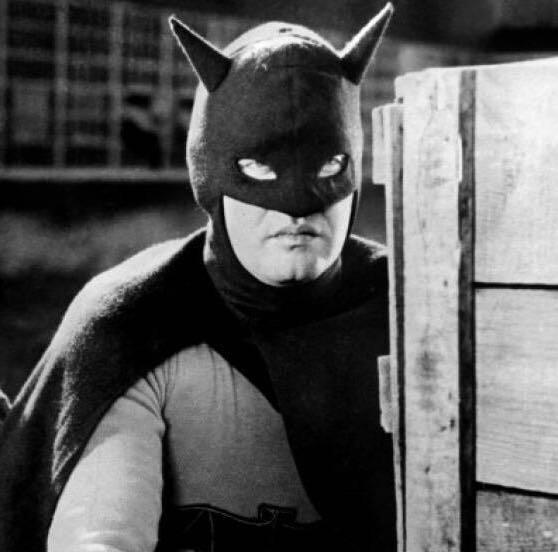

ADAM WEST THE SERIES AND THE FILM (1966-1968)

Whether you love or hate him, Adam West’s goofy take on Batman firmly cemented the iconic superhero in the Hollywood limelight with a 3 season TV series in 1966 and spawning the Batman film, complete with crazy stunts, onomatopoeia, a rogues gallery of Gotham villains and even the bat shark repellent. Despite the overt silliness that would even put Monty Python to shame, Adam West’s Batman is still a beloved part of the Batman franchise and would continue to serve as an inspiration for many years to come.


MICHAEL KEATON THE BURTON ERA (1989-1992)
For people like me born in the eighties, Michael Keaton was the quintessential Batman and arguably, the best. The casting call for Keaton, however, was controversial at the time. Prior to Batman, Keaton was better known for largely comedic roles in films such as Mr. Mom and She’s Having a Baby. So when Warner Brothers made the announcement, many critics were skeptical. What came to pass was a tour de force performance that has garnered critical acclaim for both his performance as Bruce Wayne and Batman. I personally look forward to him returning to the cape for the Flash film later this year.





KEVIN CONROY A VOCAL ICON OF THE ANIMATED ERA (STARTING 1992)

The animated series is still regarded as one of the best adaptations of the Batman comic series, and a large component of this is the amazing work of the voice actors, including Skywalker himself, Mark Hamill as the Joker and the legendary work of Mr. Kevin Conroy. Conroy was absolutely superb in the role as Batman and managed to maintain the calmness and cadence that goes along with walking the tight line between a charming Bruce Wayne and the darker Batman. He also donned the helm of the Caped Crusader for the marvelous, animated film Mask of the Phantasm, further animations and for most of the games.
VAL KILMER FIRST OF THE SCHUMACHER ERA (1995)
Kilmer often gets a bad rap for his turn at the role in Batman Forever However, many fans feel he is underrated in the role, playing a calmer turn as Batman without the inane shouting of his counterparts. He delivers a nuanced performance that delivers a Batman that checks all the boxes, including playing a surrogate father figure to the first live action Robin on the silver screen.
CHRISTIAN BALE THE NOLAN YEARS (2005-2012)
GEORGE CLOONEY SCHUMACHER STRIKES AGAIN (1997)
A role that Clooney would like to forget and one that has apologised for numerous times. In terms of Clooney’s performance, he plays a terrific Bruce Wayne. Yes, you heard that right - a terrific Bruce Wayne but an abysmal Batman. The scenes between Clooney’s Bruce Wayne and Gough’s Alfred are the best in the film. Sadly, the rest of the film, fit with terrible dialogue “Hi Freeze. I’m Batman” and cheesy one-liners (looking at you Arnold) is mostly terrible, along with Clooney’s performance as the Caped Crusader. This is one that Warner Brothers are likely to lock away in their vault like the Ark of the Covenant.
Christian Bale had the task of steadying the ship in the relaunched franchise after the disastrous Schumacher era. In Batman Begins, he had to put on weight following his life-threatening anorexic role in The Machinist, only to be told he was too beefed up and needed to lose weight to play Batman. Despite the irony of all this, Bale excels as both Batman and Bruce Wayne, especially in the latter half of his dual identity. He brings an insightful depth to Bruce Wayne that allows us to ponder which identity is the true facade. This is integrated well in Batman Begins, but he excels in the role in The Dark Knight, giving audiences a sense of the true vulnerability of the man behind the mask.
 DC Comics, Warner Bros. Entertainment, DC Entertainment
DC Comics, Warner Bros. Entertainment, DC Entertainment
BEN AFFLECK THE SNYDER PHASE (2016-2021)
Though the film received poor reviews (the director’s cut is a must see, however), one of the highlights was Affleck’s gritty performance as a mature Batman/Bruce Wayne. All Martha dialogue aside, what really stood out is Affleck’s performance as Batman, who shines brightly as a solid interpretation of the Frank Miller comic character and the most physically menacing Batman to date, which would also delight fans of the Arkham game series.


ROBERT PATTINSON A NEW ERA (2022-CURRENT)
Upon first viewing of the gritty Matt Reeves film, I was filled with a sense of dread for Gotham. For me, it was the first time I really felt a sense of horror for the citizens of the crimefilled urban nightmare. The most disturbing thing that came next is that Pattinson’s Batman feels right at home here. Pattinson’s Batman has truly adopted the darkness and gives a gritty and emotional performance in his first outing as the Batman. My only note is that he did not have much of the Bruce Wayne persona to bring to the Bat table, but let’s hope we see more of this and the duality of the character we’ve grown fond of in the likes of the Keaton and Bale performances. Hopefully, this will manifest itself in our next outing.


ALMOST DEAD COMIC BOOK



COMING SEPTEMBER 2023
GALAXY Writer / Creator RYAN BENJAMIN Artist TYLER KIRKHAM Cover Artist JOHN LIVESAY Inks@AlmostDeadComics
Almost Dead is a postapocalyptic horror- drama adventure about triumph, growth, and the resiliency of the human spirit. With their cinematic comic book series which depicts vicious and visceral events in a raw yet beautiful way, Galaxy has redefined the genre and nearly invented one of their own. Infusing the perilous and unexpectedly exciting journey with absolute horror and an attention to detail that’s rooted in and dedicated to realism, the creator and writers have established a nexus point between exhilaration and terror.


































